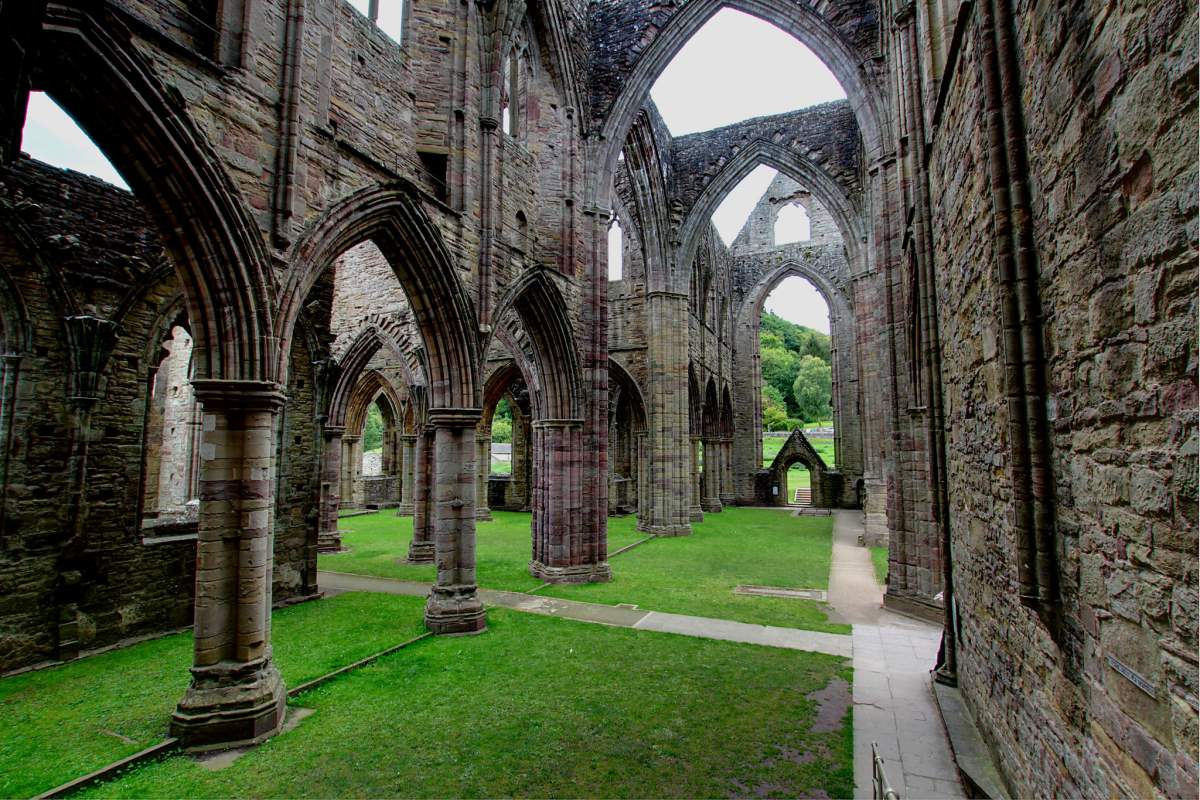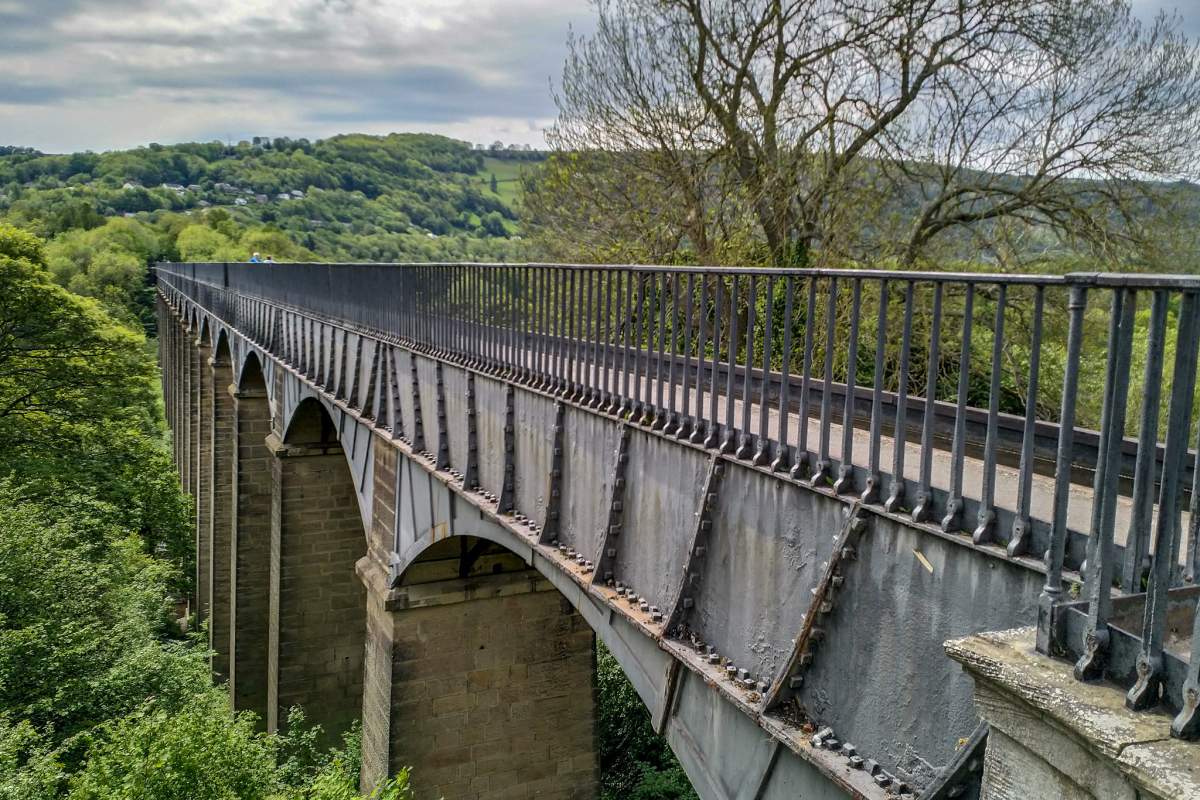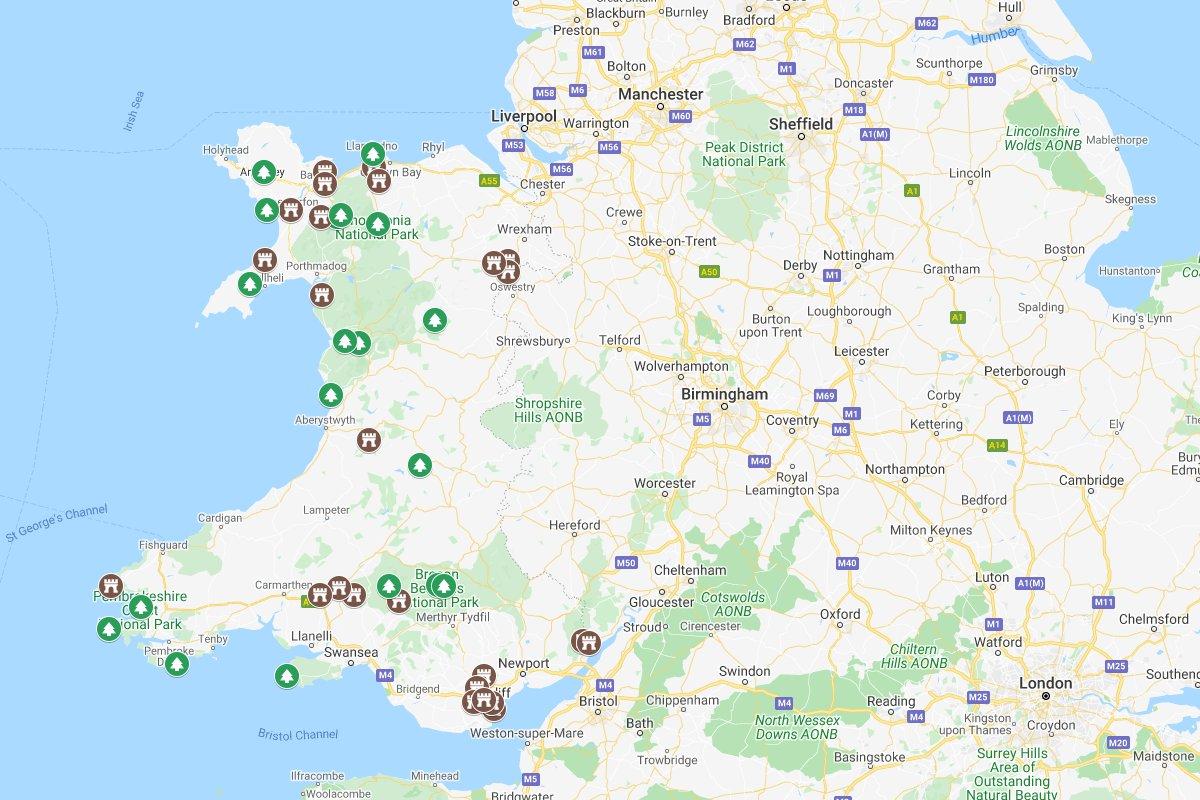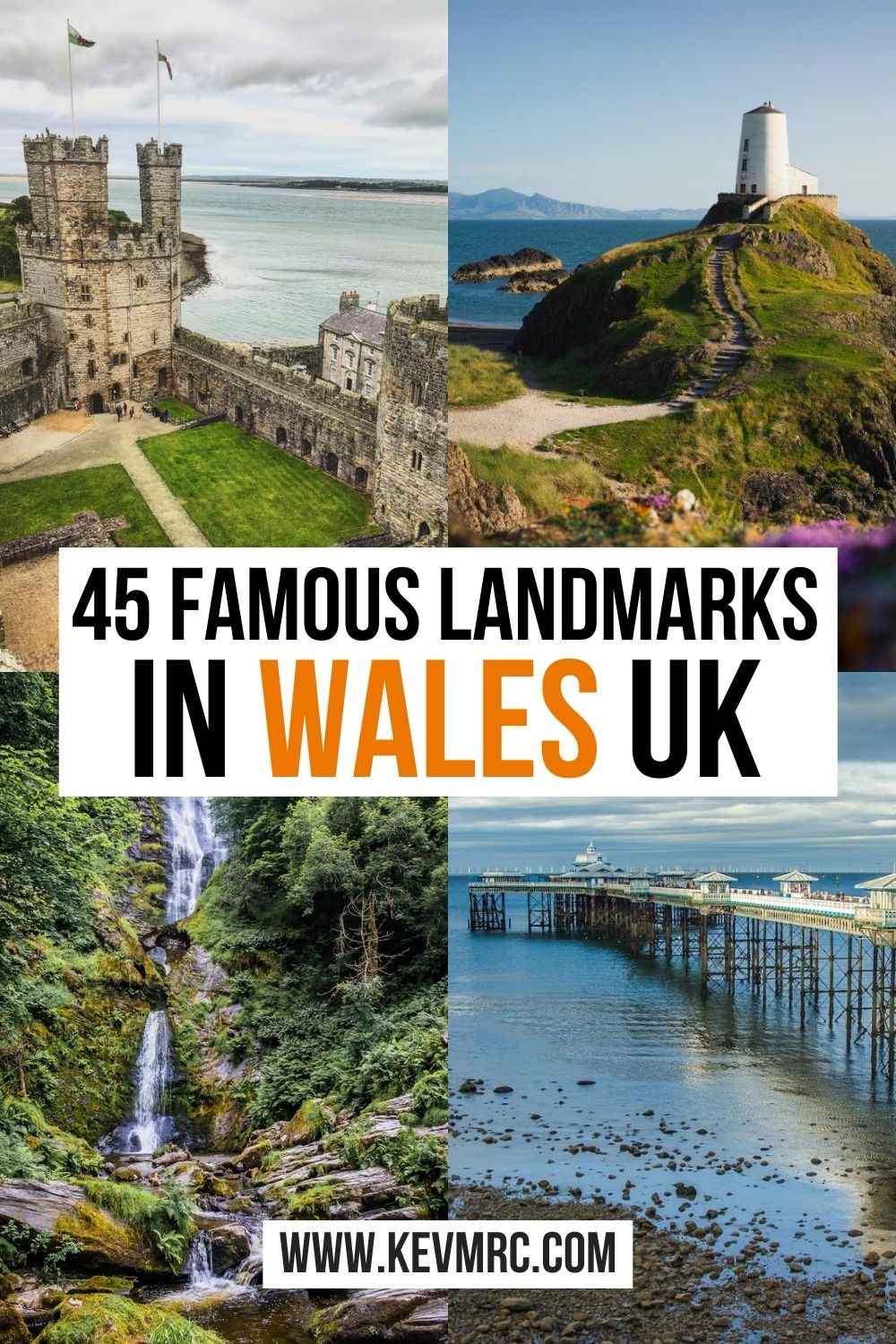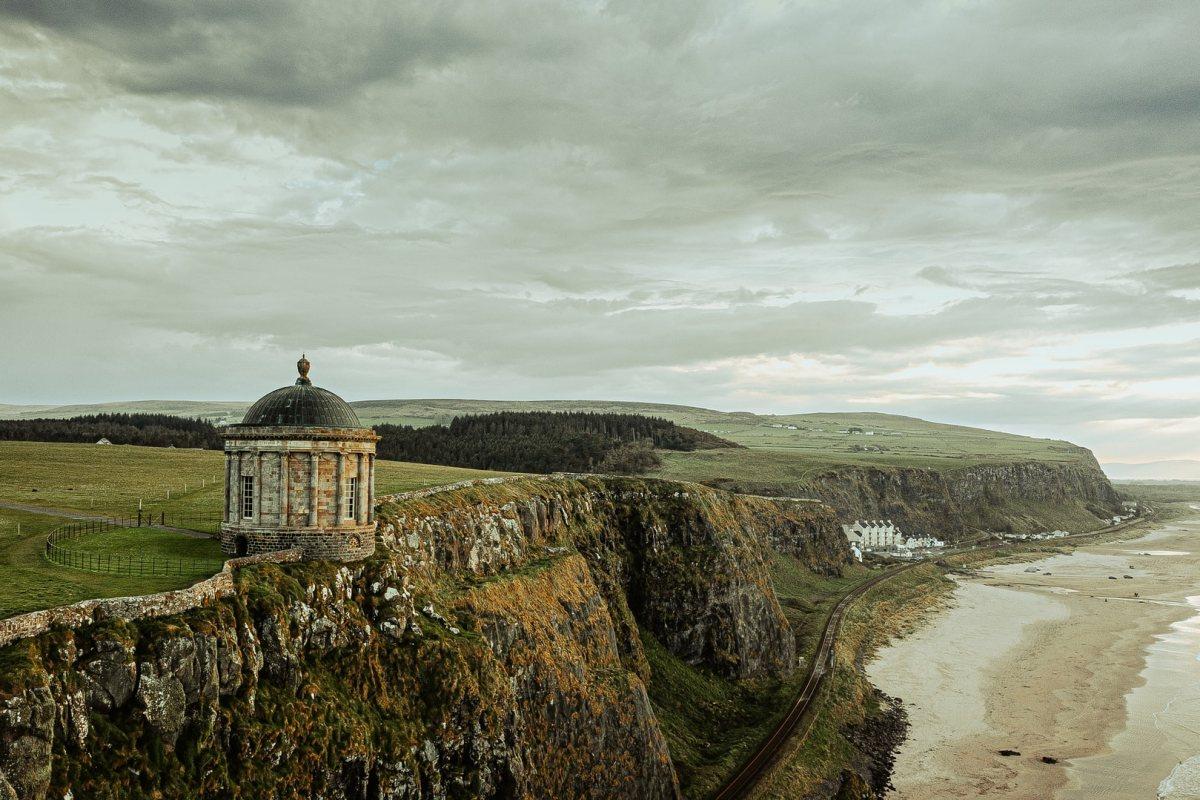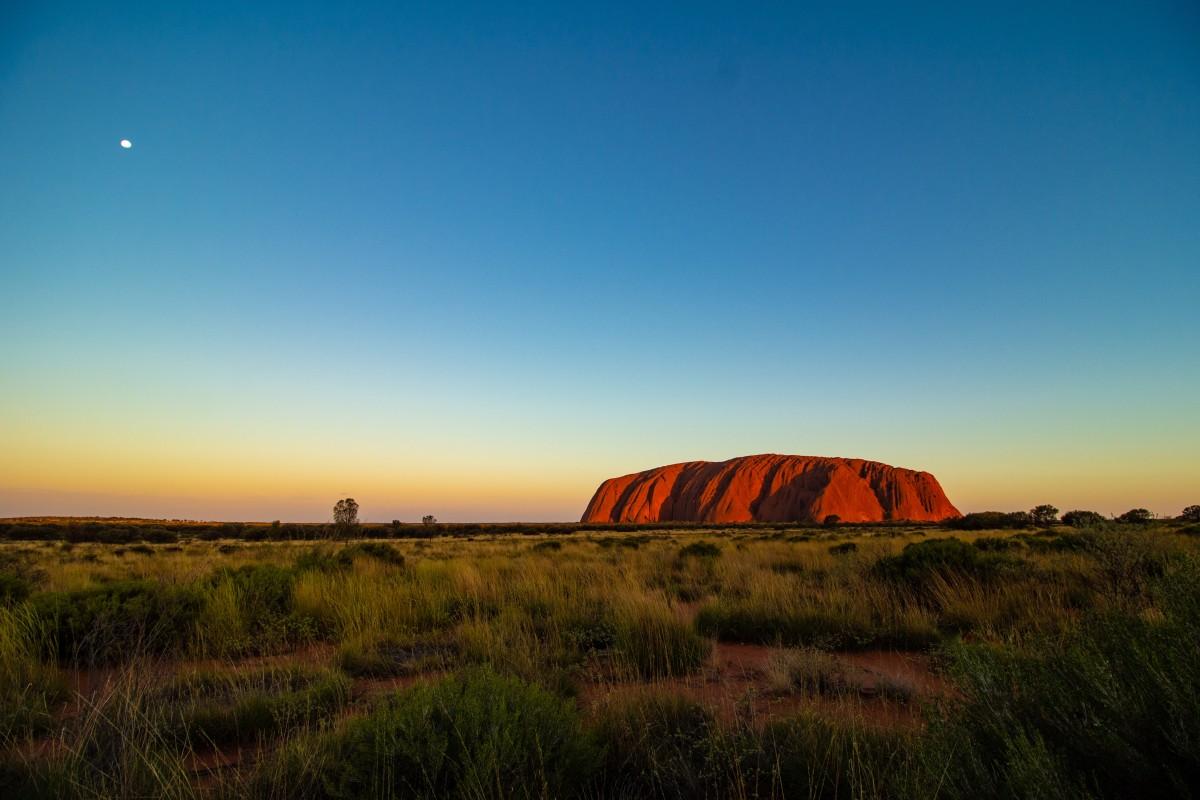45 Famous Landmarks in Wales, UK (100% worth a visit)
Located in the western part of the United Kingdom, Wales is one of the 4 nations that compose the country. This land, sometimes underestimated compared to its Irish and Scottish counterparts, is nevertheless full of treasures. The region has indeed many surprises in store for travelers in need of emotions, sensations, and nature.
Still spared from mass tourism, Wales has a magnificent coastline alternating cliffs, beaches, and charming harbors, as well as lands covered with mountains, valleys, and castles.
Wondering what are the famous landmarks in Wales?
Discover the top 45 Welsh landmarks in this post! 🏴
Full List of the 45 Famous Welsh Landmarks
We’ve divided the famous landmarks of Wales into 2 main categories: the man made landmarks on one hand; the natural landmarks on the other hand.
Below find out our selection of the top 28 landmarks by category, and 17 more for the bravest readers!
🏛 Famous man made landmarks in Wales:
- Cardiff Castle
- Conwy Castle
- Caernarfon Castle
- Harlech Castle
- Beaumaris Castle
- Caerphilly Castle
- Castell Coch
- Penrhyn Castle
- Devil’s Bridge Falls
- Tintern Abbey
- St. Fagans National Museum of History
- Wales Millennium Centre
- St Davids Cathedral
- Bodnant Garden
- Pontcysyllte Aqueduct
🌳 Famous natural landmarks in Wales:
- Snowdonia
- Brecon Beacons National Park
- Pembrokeshire Coast
- Elan Valley
- Cadair Idris
- Anglesey Island
- Ynys Llanddwyn (Llanddwyn Island)
- Cwm Idwal
- Llandudno
- Llyn Peninsula
- Skomer Island
- Rhossili Bay
- Lake Vyrnwy
🔎 Other famous Wales landmarks:
- Chirk Castle
- Plas Newydd House
- Dolbadarn Castle
- Tre’r Ceiri
- Llyn Ogwen
- Cregennan Lakes
- Carreg Cennen Castle
- Barafundle Bay Beach
- Dinefwr Castle
- Ynyslas Dunes
- Paxton’s Tower
- National Showcaves Centre for Wales
- Pen y Fan
- Offa’s Dyke
- Llyn y Fan Fach
- National Museum Cardiff
- Llandaff Cathedral
So, here’s the full list of the famous landmarks Wales has to offer. Keep reading to learn more about each of these places! 👇
Famous Man Made Landmarks in Wales
The countless number of monuments that can be found everywhere here make Wales a perfect destination, whether with family, friends or as a couple.
Let’s discover the famous monuments in Wales, including castles, bridges, gardens, and other buildings.
1. Cardiff Castle
Cardiff Castle is located in the center of Wales’ capital city and is arguably Cardiff‘s most famous landmark.
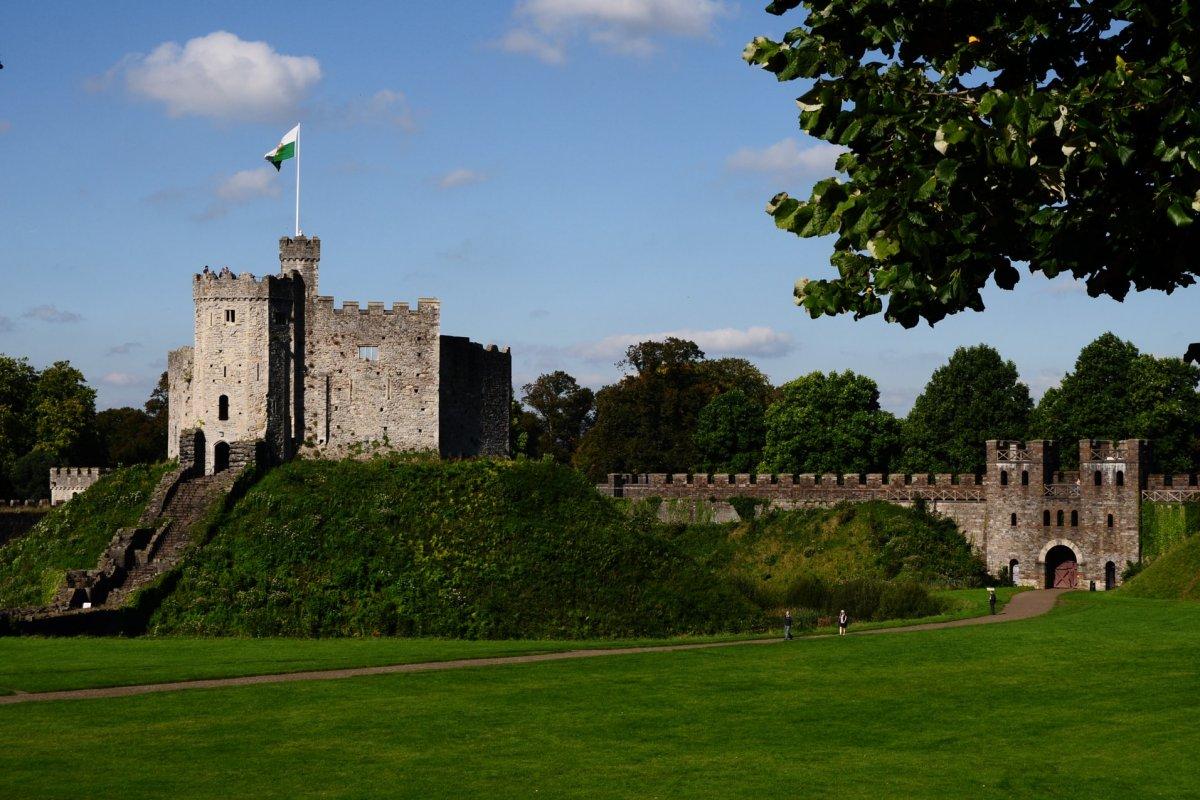
Cardiff Castle is in fact made of 3 fortresses from different eras. The castle was built on a site of an ancient Roman fort of which some parts have been kept and partially restored. 2 more additions have been made later, the Norman castle in the 11th century, and the Victorian Palace in the 19th century.
Climbing the Norman Keep (the castle’s main tower) is an absolute must-do when visiting Cardiff Castle, mainly for the incredible view over the city. You’ll have fun exploring the castle’s basement, the Castle House, as well as the Clock Tower Tours.
2. Conwy Castle
Listed as a UNESCO World Heritage Site, Conwy Castle is one of the most visited fortresses in Wales.
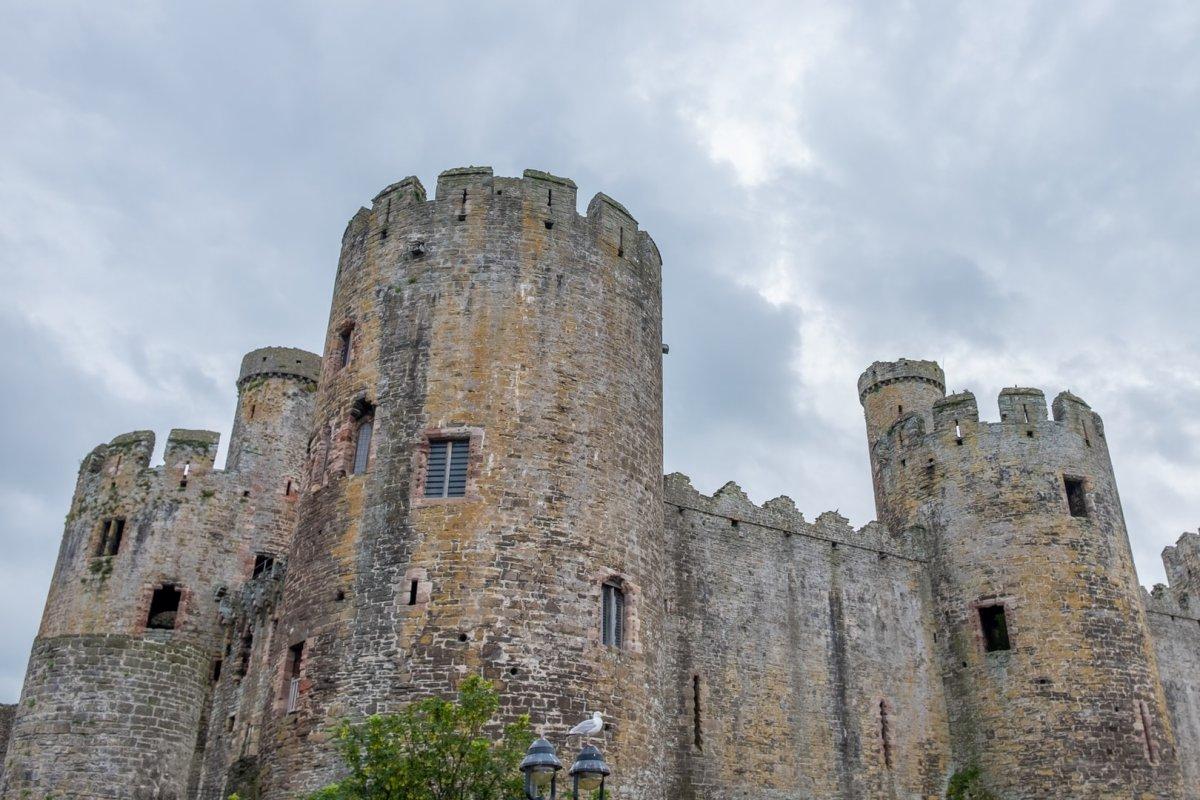
Built between 1283 and 1287 at the request of Edward I of England on the banks of the River Conwy, this castle is a military construction composed of 8 towers, 2 fortified gates, and a keep. Additions have been made throughout its history, including the Telford Bridge in the 1820s, named as one of the very first road bridges in the UK!
This fortress town of about 15,000 people is a must-see. A visit to the Great Hall, the view of Mount Snowdon from the walls, and the charm of Castle Street will delight you.
3. Caernarfon Castle
Located in North Wales, Caernarfon Castle is an imposing fortress and a symbol of the English authority.
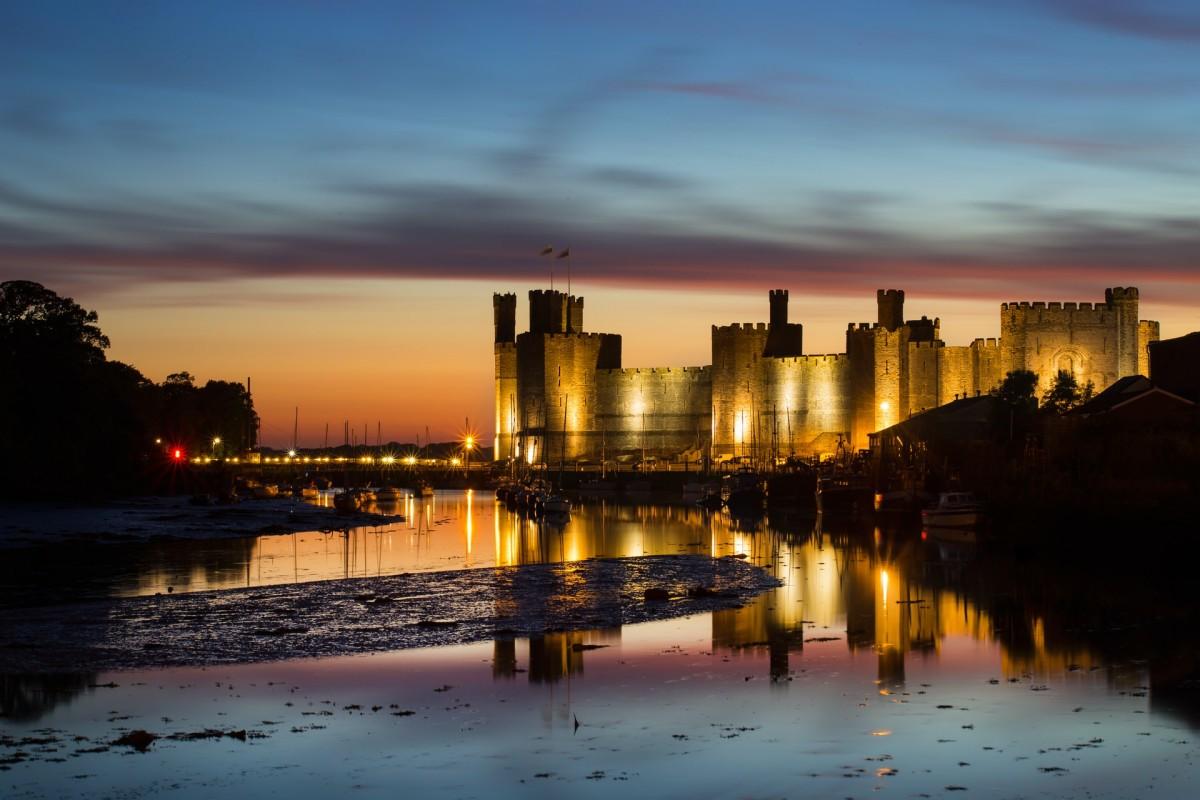
Also commissioned by King Edward I after his conquest of Wales in the late 13th century, Caernarfon Castle is one of the largest medieval constructions in Europe. The castle went through an eventful history: it was besieged several times in the 15th century, then during the First English Civil War in the mid-17th century. It was then neglected until the end of the 19th century until the English government launched a restoration campaign.
Listed as a UNESCO World Heritage Site in 1986, Caernarfon Castle is now a major tourist attraction. You can better understand the history of the castle by visiting its museum.
4. Harlech Castle
Harlech Castle is an impressive fortress perched on a rocky outcrop and is one of the castles of the Iron Ring built at the end of the 13th century by Edward I during the conquest of Wales.
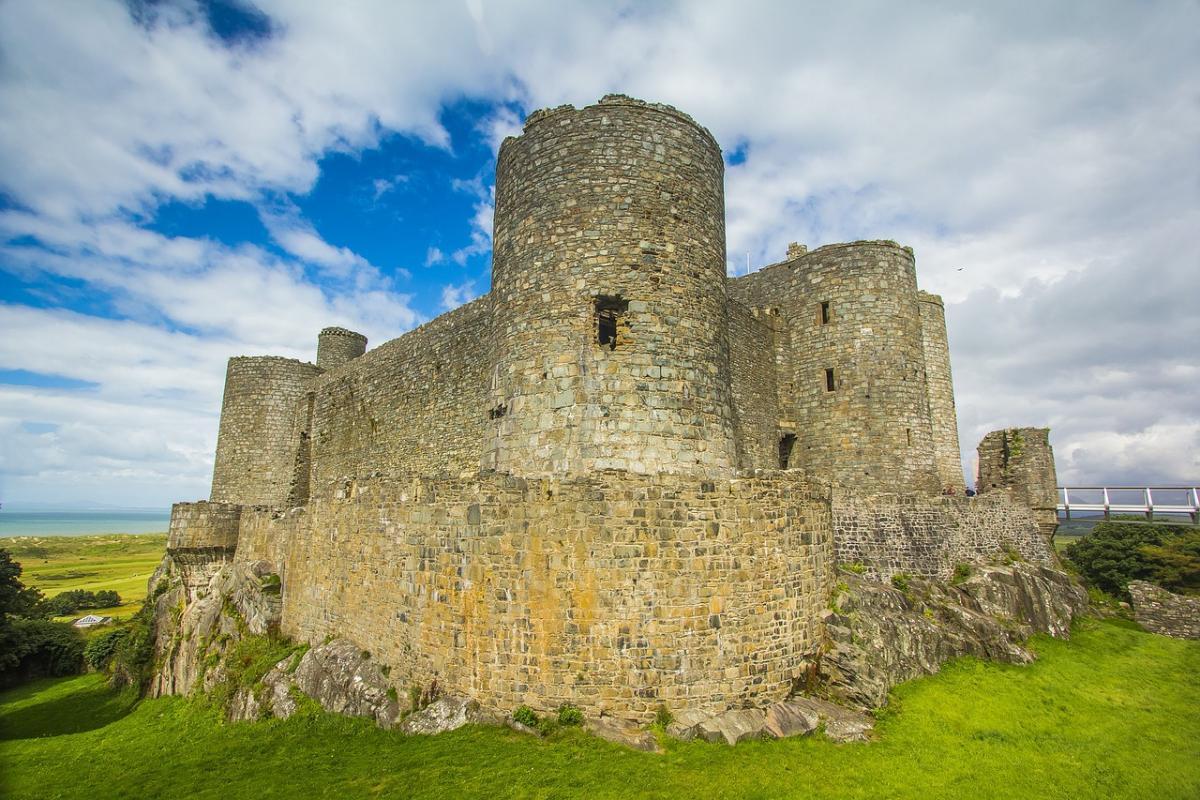
Located on the coast about 30 kilometers from Portmeirion, this massive building, which has survived more than one siege, is protected by high cliffs and a deep moat. Exploring the castle isn’t for everyone: indeed, the fort was built in such a way that the enemy will have to go through a lot of effort before entering it.
Beyond its architectural interest, Harlech Castle offers breathtaking views of the Irish Sea and the surrounding mountains. On a clear day, Tremadog Bay can be seen in the distance.
5. Beaumaris Castle
Listed as a UNESCO World Heritage Site, Beaumaris Castle is also the work of Edward I, and a famous landmark in Wales.
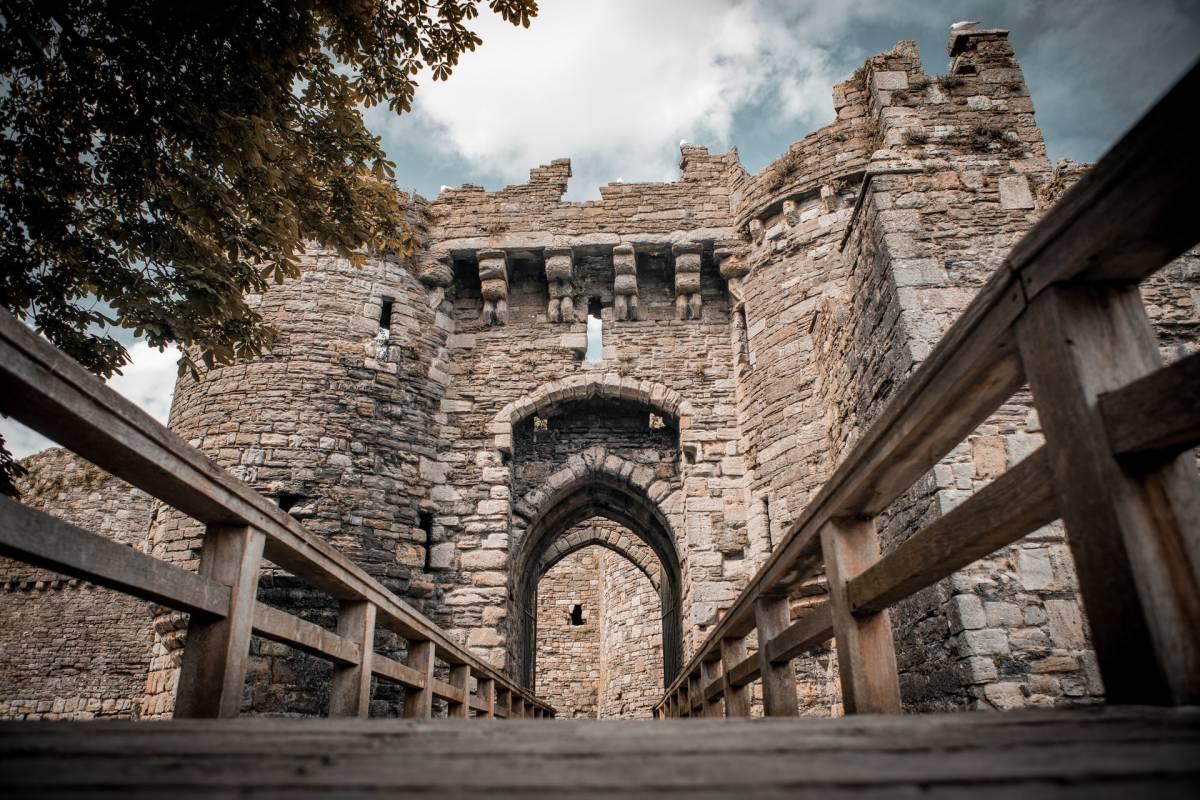
Located on the island of Anglesey, it took more than 30 years of work to build this fortress with 4 successive lines of defense…but the construction was never completed due to a shortage of funds! Built in 1295, Beaumaris Castle is known to be the largest and last construction carried out by Edward I of England to assert his power.
Beaumaris Castle is also known for its extraordinary panorama where it’s embedded. Beautifully bordered by water and trees with the sun shining down on the whole with its warm light, the site is pleasant to walk around while soaking up the Welsh culture.
6. Caerphilly Castle
A few kilometers from Cardiff, this gigantic medieval fortress is built in the middle of a lake punctuated with small islands. It’s the largest castle in the UK after Windsor Castle.
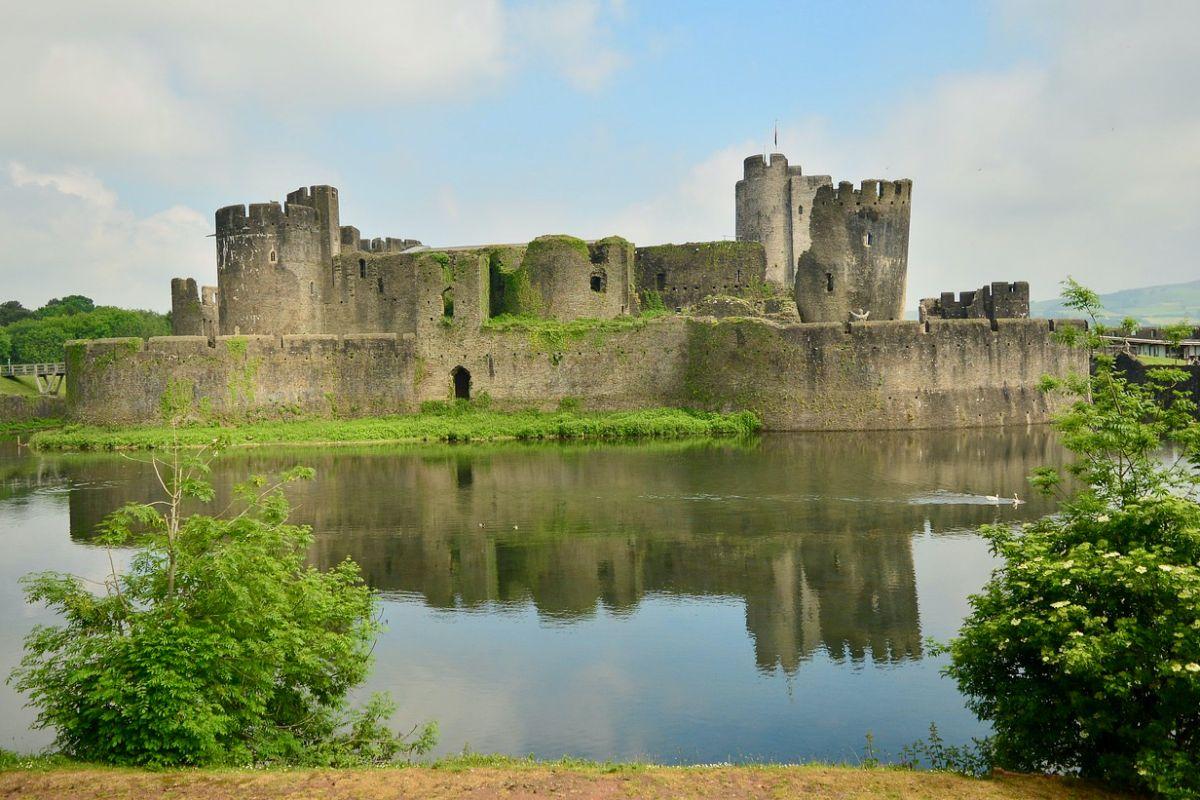
Completed in the 13th century by the Normans, the castle fell into decline due to some stormy events in the 16th century. The Bute family then acquired the castle and launched extensive work to restore it to its former glory.
Famous for its Leaning Tower, Caerphilly Castle is surrounded by impenetrable walls and defensive moats. It’s necessary to cross several drawbridges to finally reach the heart of the castle.
7. Castell Coch
Castell Coch, also known as the “Red Castle”, is located in South Wales in the Tongwynlais Forest.
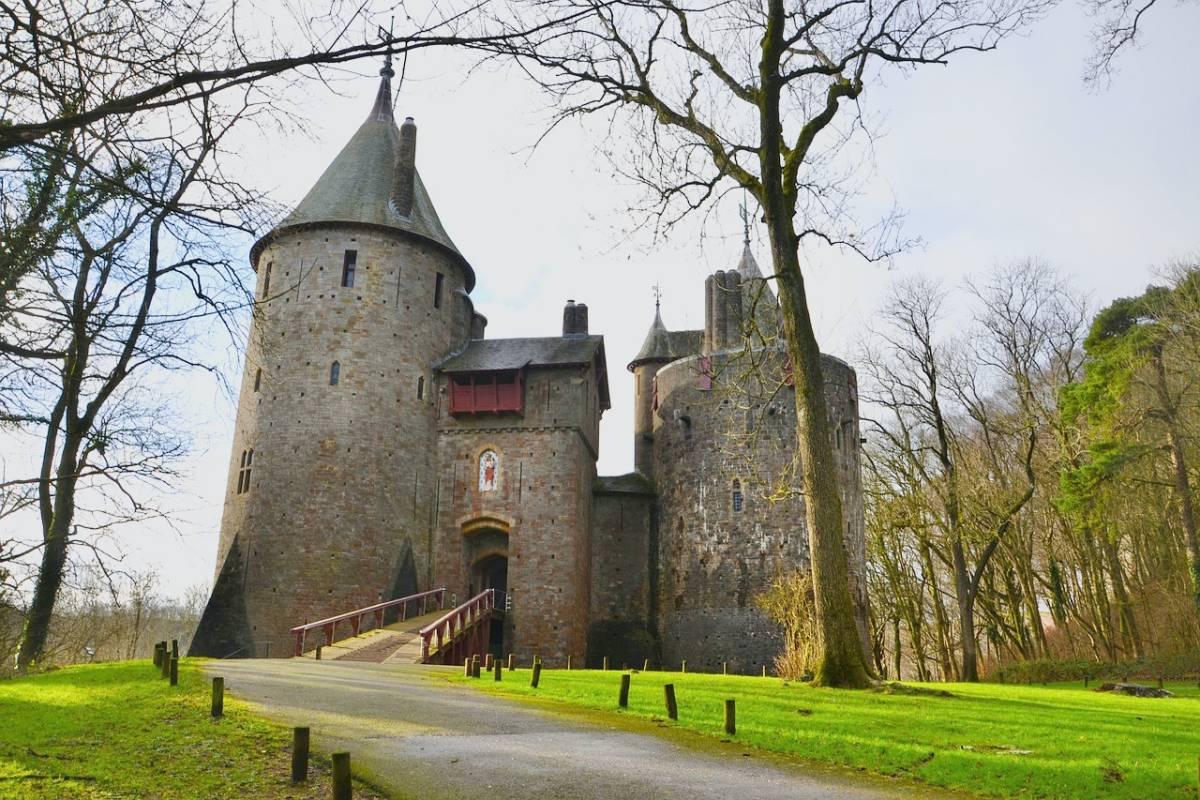
Founded on the ruins of a medieval castle of the 11th century, Castle Coch is a gothic fortress featuring rounded towers that are visible from afar. The current castle was built by William Burges in the 19th century, the same designer behind Cardiff Castle and Salisbury Cathedral. The Marchioness of Bute lived within its walls until 1950 when she died.
From the outside, Castell Coch has all the attributes of a medieval castle as we imagine it: a drawbridge, a moat surrounding the castle, and massive towers with conical roofs connected by ramparts. Inside, the settings are inspired by nature, legends, and mythology.
8. Penrhyn Castle
Located near the university town of Bangor, Penrhyn Castle is somewhat different from other medieval fortifications in the area.
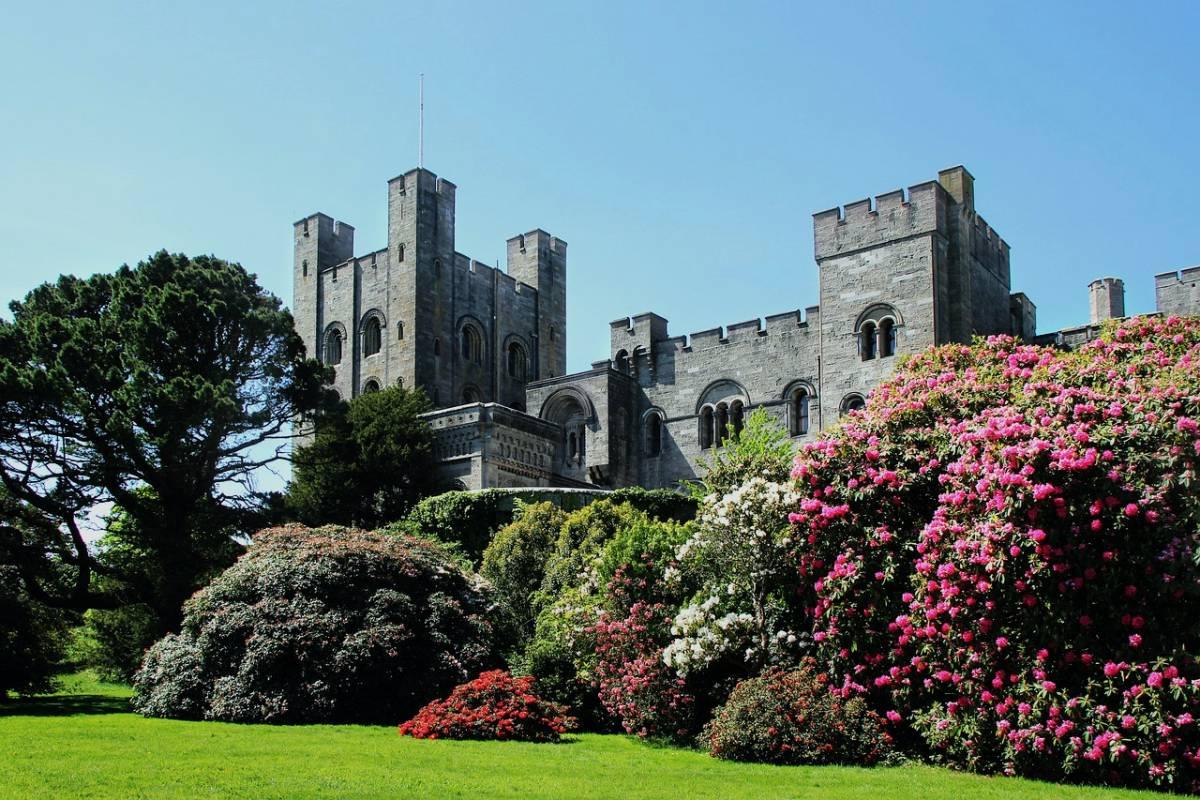
The castle was once a fortress, built in the 15th century by the Welsh warrior Ednyfed Fychan. But the present building is a complete transformation of the original building, carried out between 1822 and 1837 by the architect Thomas Hopper for George Day Dawkins-Pennant, heir to the castle.
The exterior of the manor has a medieval look, but the interior offers a rich decoration that has nothing medieval about it! The castle is surrounded by beautiful gardens that offer great walking options. The castle also houses a railway museum dedicated to locomotives used in the past in the nearby slate quarries.
9. Devil’s Bridge Falls
Located in Mid Wales near Aberystwyth, Devil’s Bridge Falls is a Welsh site known for its suspension bridges and beautiful waterfalls.
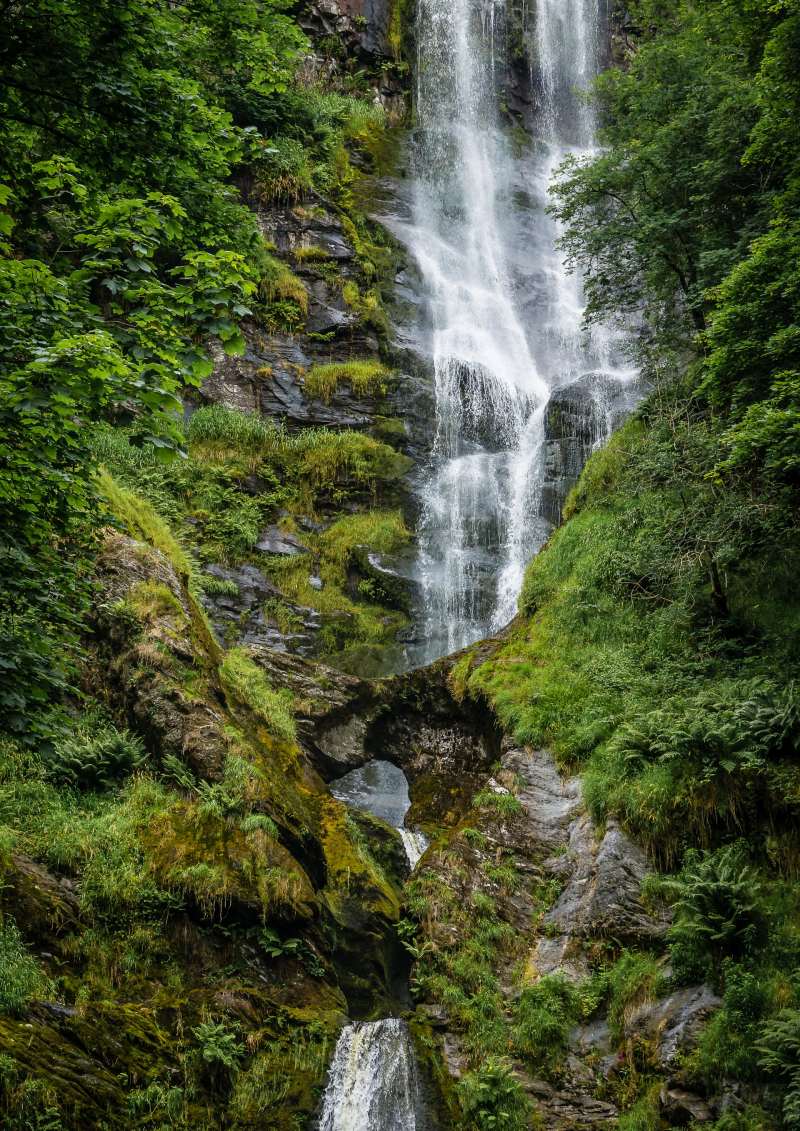
2 stone suspension bridges dating from 1075 and 1753 blend into the scenery. The third one, built in 1901 on top of the 2 bridges is an iron bridge. A circular road leads to Jacob’s Ladder, a picturesque staircase offering superb views of the 91 meter high waterfalls.
Devil’s Bridge Falls is also known for its legends: the bridge is named after a story that the bridge was built by the devil himself.
10. Tintern Abbey
Built in the 12th and 13th centuries, Tintern Abbey is one of the most beautiful abbeys in Europe. Surrounded by wooded valleys on one side and crossed by the River Wye on the other, the abbey impresses especially by its size.
Founded by Cistercian monks in 1131, the abbey was the richest in Wales in the 14th century. But it suffered the same fate as the other monasteries in 1536, following a law passed under Henry VIII requiring any abbey with an annual income of less than £200 to be dissolved. Abandoned, the abbey gradually fell into ruin, and gradually became a source of inspiration for poets fascinated by the romantic character of the ruins.
Tintern Abbey is completely open air. Its majestic arches reveal a beautiful pastoral landscape, particularly striking at sunrise and sunset.
11. St. Fagans National Museum of History
Located 6 kilometers west of Cardiff in a beautiful park, St. Fagans National Museum of History is a top-rated attraction in Wales.
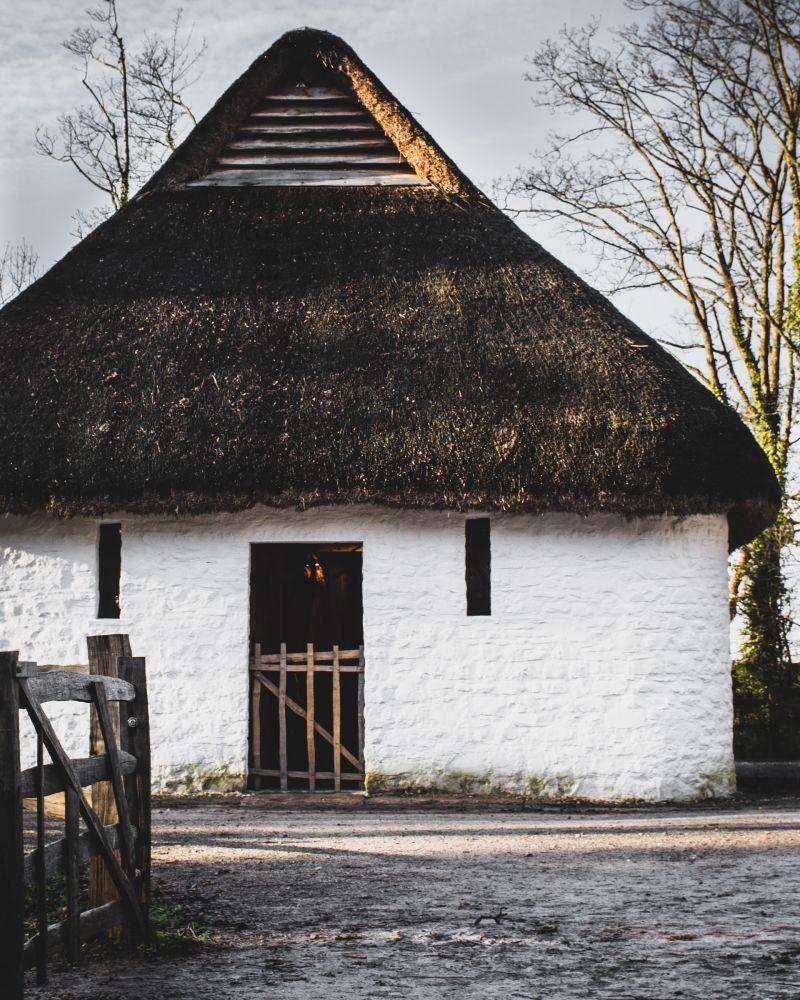
Similar to Stockholm’s Skansen, St. Fagans is an open-air museum displaying over 40 reconstructions of ancient buildings, including a Celtic village from the IronAge and a medieval church. There are also traditional workshops, farms, and galleries showing ancestral skills and Welsh costumes.
Stretching over 40 hectares, St. Fagans offers an immersive experience and a true journey into the past to all visitors curious about Welsh and UK’s history.
12. Wales Millennium Centre
Located on Cardiff Bay, the Wales Millennium Centre is regarded as one of the world’s best performing arts centers. With a 1900 seat theater and a 250 seat drama studio, this is one of the most important venues of Cardiff.
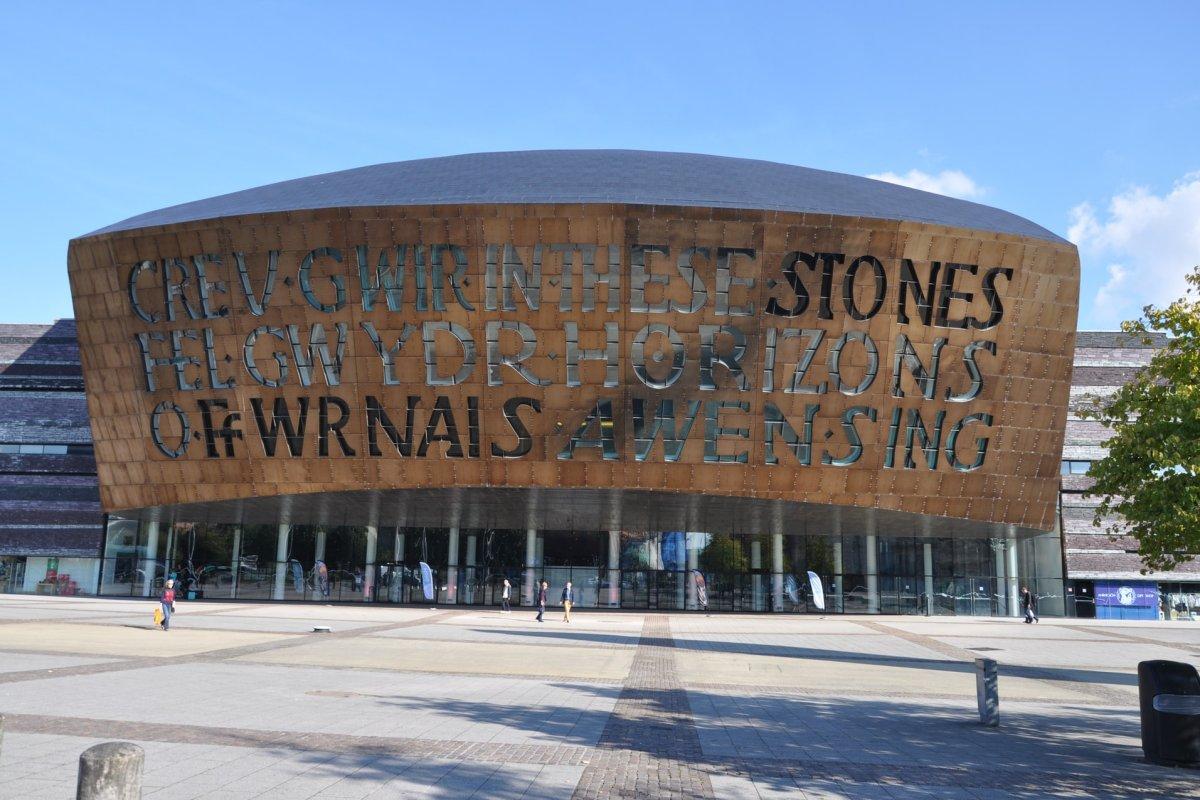
Opened in November 2004, the initial project behind this center was to build a Welsh opera house. Entirely made of metal, wood, and slate from the area, the Wales Millennium Centre is one of the few buildings reflecting the Welsh spirit.
The Wales Millennium Centre hosts some of Europe’s most lively and varied performances including opera, dance, ballet, comedy, musical productions, and concerts.
13. St Davids Cathedral
Located in the county of Pembrokeshire, St David’s Cathedral is the largest and one of the oldest cathedrals in Wales.
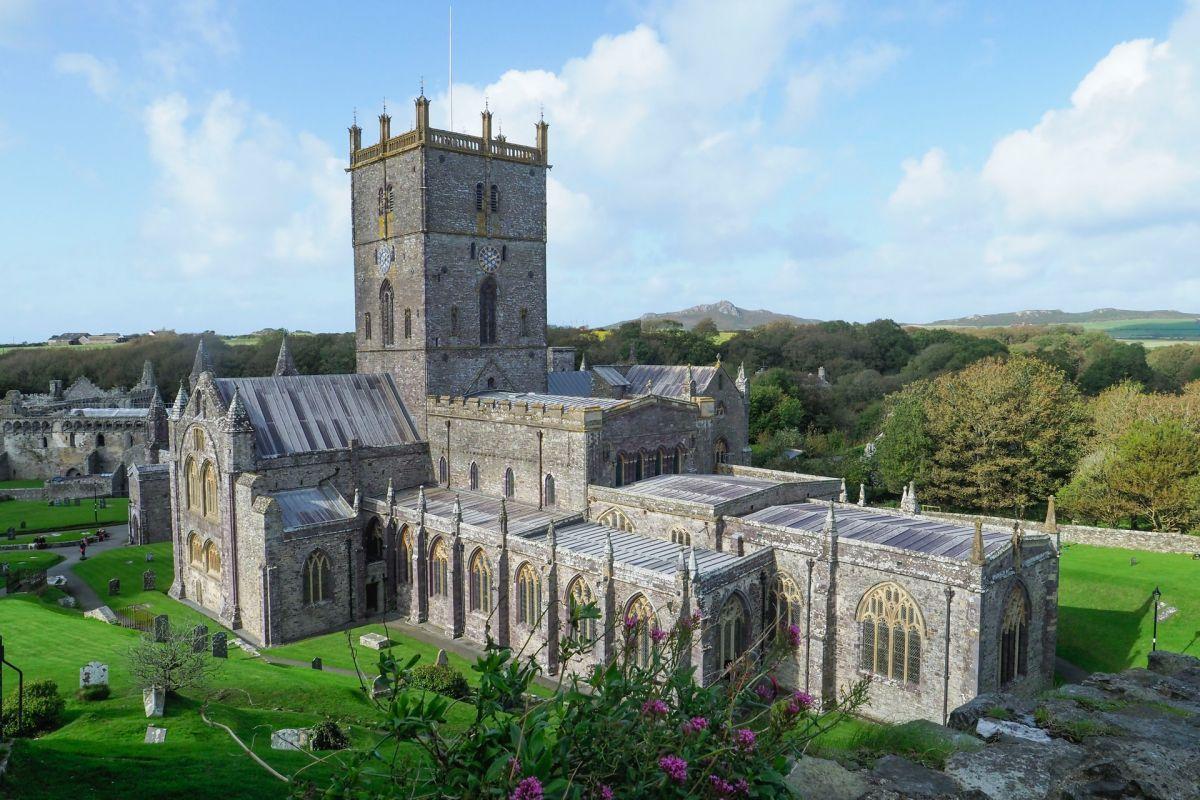
The current cathedral stands in a valley below the village of St Davids, on the site occupied by former cathedrals destroyed by Viking raids. The cathedral was built between 1181 and the middle of the 13th century, then modified in the 14th and 16th centuries. Recent restorations have improved the cathedral’s appearance, which was slowly but surely deteriorating.
The cathedral was built with local stones that give it this amazing mix of pink and grey tones. It’s dominated by a central square tower, very characteristic of Anglican cathedrals. The most remarkable elements inside are the oak ceiling dating from the early 16th century, the tomb of St David, and his relics.
14. Bodnant Garden
Located in the Conwy Valley, Bodnant is one of the most beautiful gardens in England.
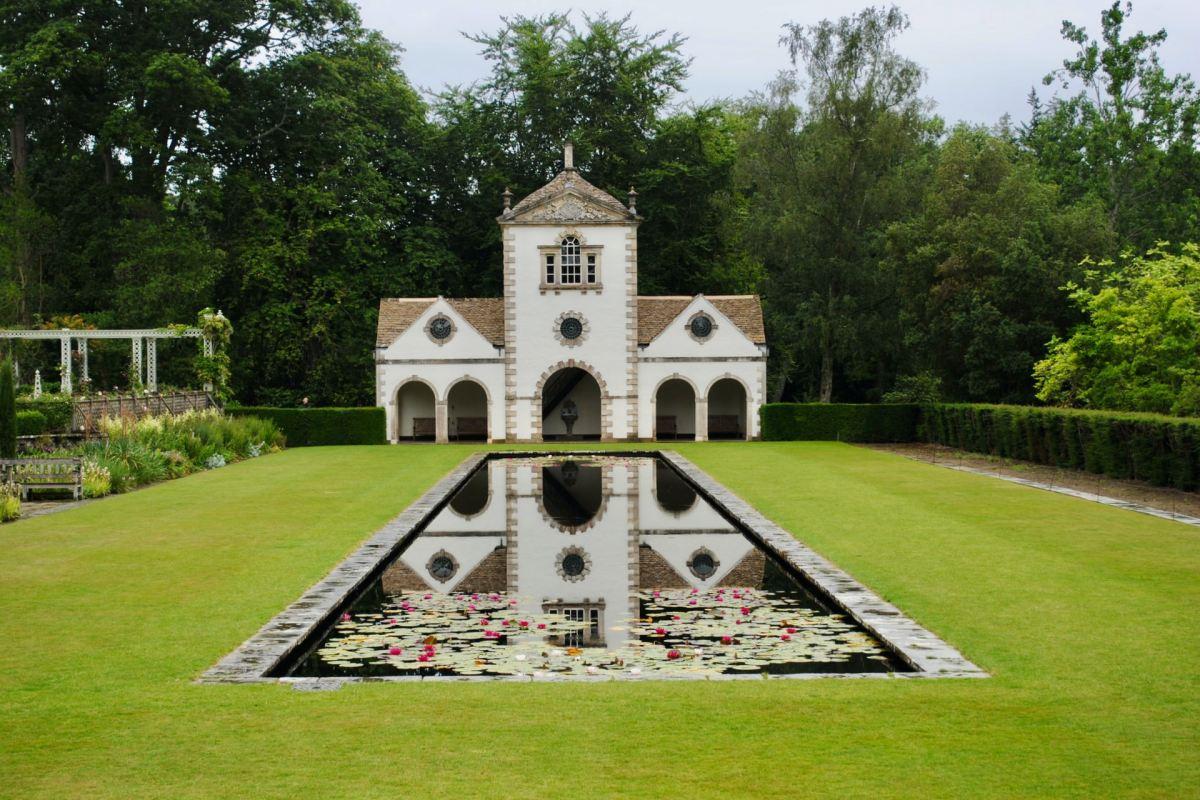
This 32-hectare garden was founded in 1874 by the MacLaren family, who gave it to the National Trust in 1949. The rose garden had to be completely renewed in 2005 because the roses were ravaged by disease. Now, David Austin’s remontant and climbing roses delight visitors.
The most famous part of the garden is certainly the 55-meter long gallery composed exclusively of laburnum. The garden also has a fine collection of trees.
15. Pontcysyllte Aqueduct
The Pontcysyllte Aqueduct, in the west of Great Britain, is an impressive bridge located on the Llangollen Canal in Wales.
Built between 1796 and 1805 by Thomas Telford and William Jessop, this structure is the longest and highest aqueduct in the UK. This architectural marvel has 19 arches, is 307 meters long, and stands 39 meters above the River Dee. In 2009, UNESCO registered the Pontcysyllte Aqueduct on the World Heritage List.
In the past, this bridge was used for trade and for the transport of goods. Nowadays, it serves only as a tourist attraction. You’ll see many visitors coming from all over the world to admire it.
Famous Natural Landmarks in Wales
Wales is famous for its huge national parks, outstanding nature reserves between the sea and the mountains, and extensive areas barely explored by humans. Here, the fauna and flora bloom in the heart of green valleys where rivers and waterfalls flow, at the edge of steep mountain slopes.
Here are the most beautiful natural gems of Wales.
16. Snowdonia
Located on the west coast of Wales, Snowdonia is the largest park in Wales and home to Mount Snowdon, the highest peak in England reaching 1,085 meters above sea level.
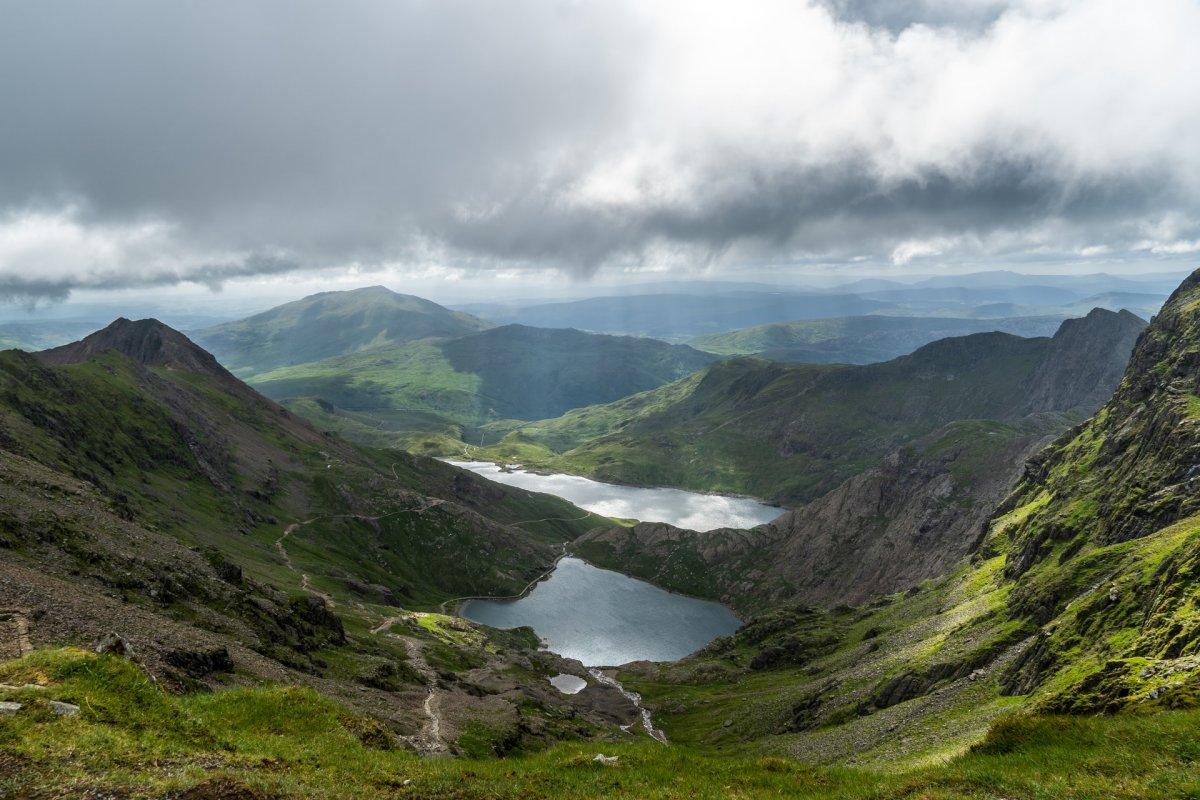
The park’s unique and diverse landscape offers plenty of activities and is a great place to explore. Covering an area of 318 square kilometers, Snowdonia is also home to many picturesque villages, including the pretty village of Portmeirion.
There are 2 options for reaching the summit of Mount Snowdon. You can comfortably ride the Mount Snowdon Railway from Llanberis, or you can follow one of the 5 main trails that reach the summit of Snowdon from different sides. Among the places not to be missed we can list Lake Bala (the largest lake in Wales), Castell-y-Bere (a ruined Welsh castle), or Swallow Falls.
17. Brecon Beacons National Park
The Brecon Beacons is a national park extending from the south of the town of Brecon to the north of Merthyr Tydfil, on the edge of the mining areas of Wales.
![]()
The national park is dominated by Pen y Fan, the highest point of the park with a height of 886 m above sea level and its distinctive silhouette. Covering an area of 1,350 square kilometers, the park offers a variety of spectacular landscapes. High mountains, waterfalls, and prehistoric remains can be found along the trails. The park is also known for its network of underground galleries and caves.
The region attracts many hikers who want to enjoy the beauty of the landscape. Small villages, such as Hay-on-Wye and Crickbocuell, also dot the Brecon Beacons and are excellent stops.
18. Pembrokeshire Coast
Pembrokeshire is the county that covers the southwestern tip of Wales. It has beautiful coastal scenery and many charming villages surrounded by one of the country’s most beautiful national parks, the Pembrokeshire Coast National Park.
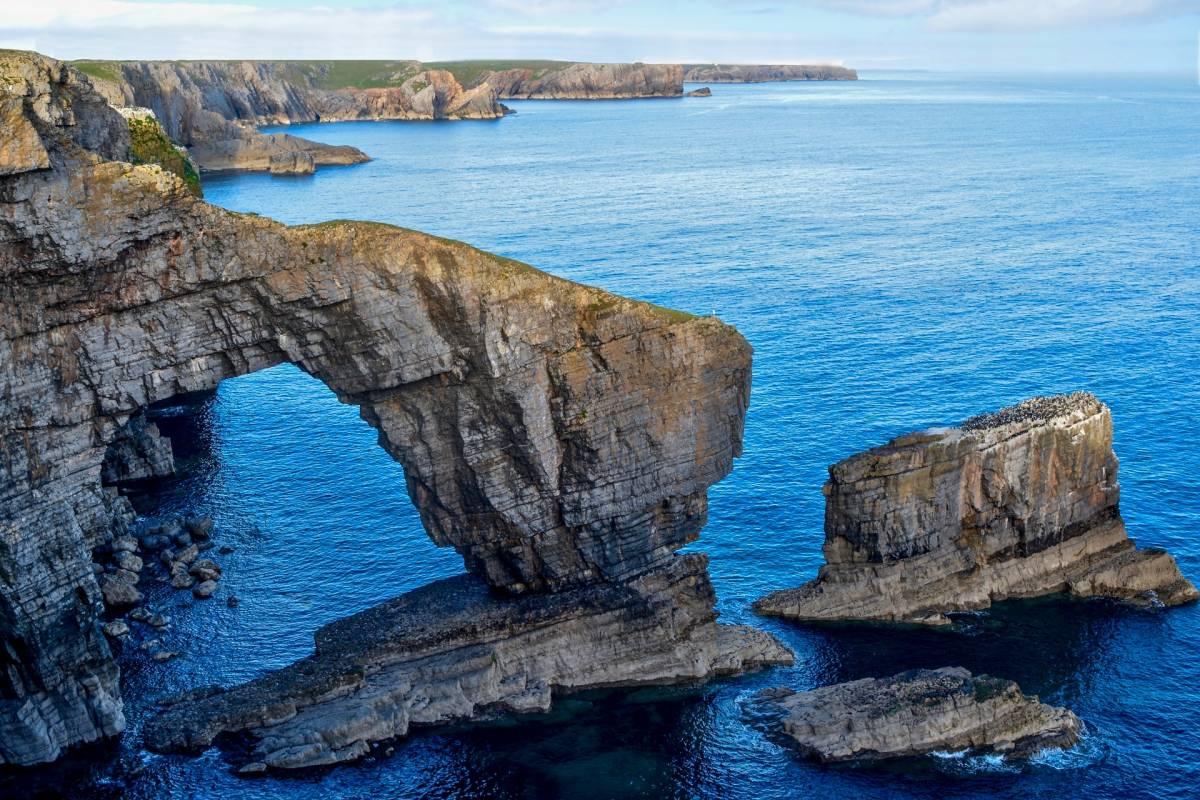
Here, steep cliffs follow wild golden beaches. To see them up close, you can take the hiking trails that cover nearly 300 kilometers! On one side, the Irish Sea borders the shore and on the other side, the green hills are home to menhirs and chapels.
The coasts of the Pembrokeshire National Park are the perfect playground for coasteering or for watching seals and dolphins. A stopover in Tenby, a pretty small port with colorful houses, is also worth a visit.
19. Elan Valley
To visit Wales from every angle, follow the Reservoir Route as it winds through the Elan Valley.
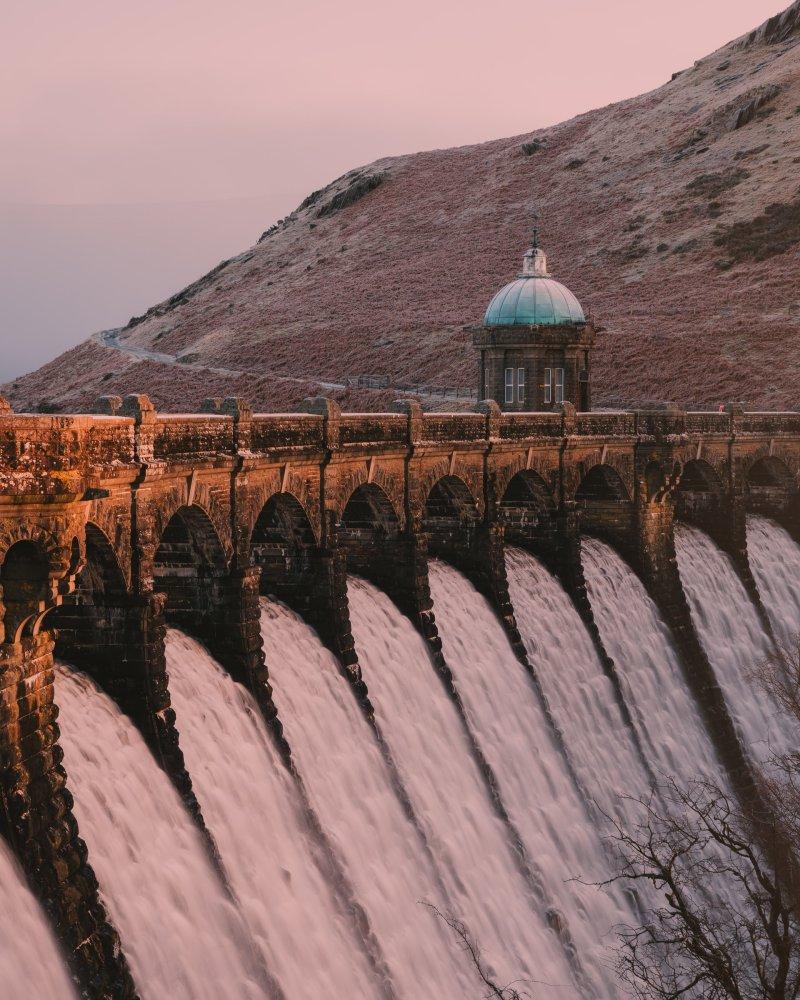
In the heart of a beautiful wilderness area, a series of dams were built on the River Elan in the early 19th century to supply Birmingham with drinking water. In 1952, a 5th reservoir was added to the 4 reservoirs of the time. Today, the abundant rainfall in the region that fills the water tanks supplies drinking water to the city of Birmingham, Mid Wales, and parts of South Wales. The dams are also used to generate electricity.
The best way to discover the valley is from Rhayader. The road goes along the series of reservoirs (with a small detour to appreciate the Claerwen Reservoir) and then you can reach Aberystwyth by crossing wonderful landscapes.
20. Cadair Idris
Also known as Penygader, Cadair Idris is a mountain located in the town of Dolgellau. The climb up Cadair Idris is a must-do in Wales!
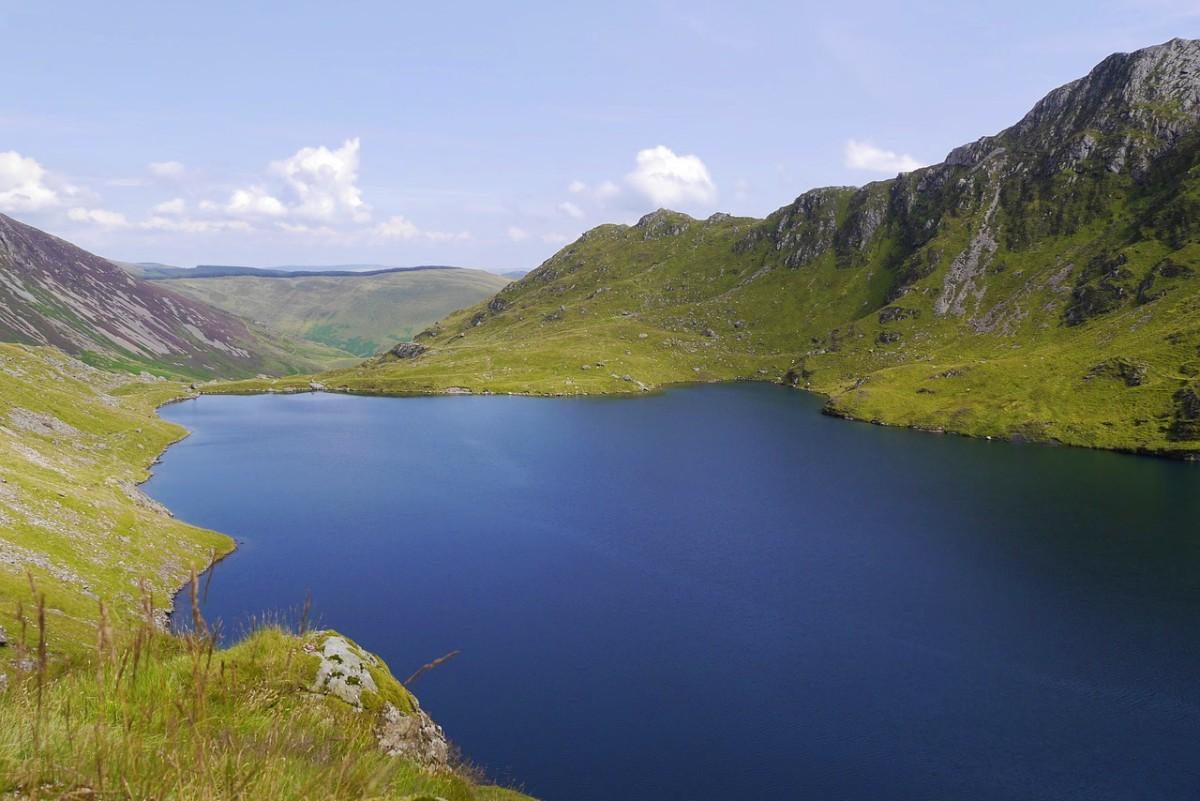
This 892-meter peak overlooking the estuary of the river Mawddach is known to offer some of the most beautiful scenery in Wales. Its name, meaning “Idris’ chair”, is believed to refer to a 7th century Welsh prince, Idris ap Gwyddno, who is said to have defeated the Irish at the foot of this mountain. Another version refers to a legendary giant, Idris, who was a poet, astronomer, and philosopher.
The ascent of Cadair Idris is mainly done via three different paths: Pony Path (the longest, but with a less brutal difference in altitude), Fox Path (shorter but much more difficult, sometimes even dangerous depending on the weather conditions), and finally Minffordd Path (the most beautiful path).
21. Anglesey Island
Anglesey is in fact not quite an island: separated from the mainland by the Menai Strait, the island is linked to the city of Bangor on the mainland by 2 bridges: Menai Bridge and Britannia Bridge.
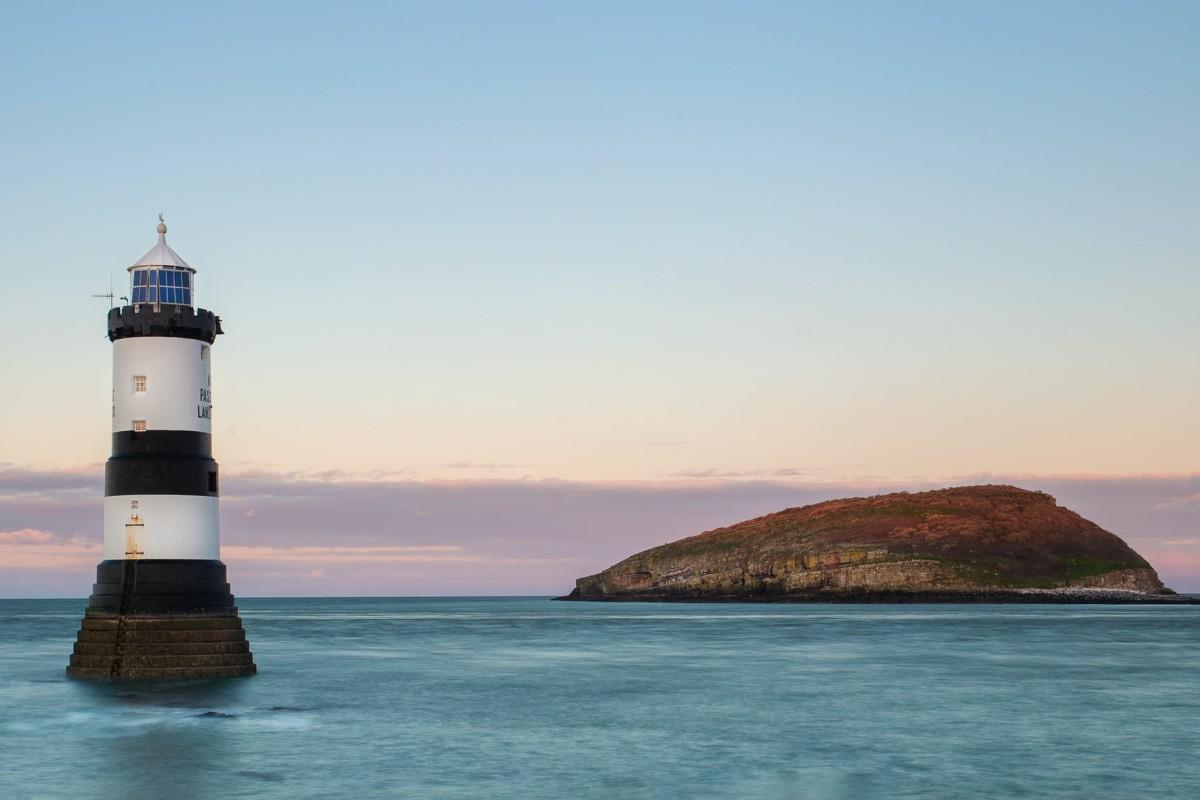
The island has a different landscape from the rest of Wales, rather flat and agricultural. But Anglesey has some pleasant beaches, some cliffs, neolithic monuments, the beautiful lighthouse of Trwyn Du, and one of the most famous castles in Wales, Beaumaris Castle.
But a village with no real charm attracts hundreds of thousands of tourists every year. A village with the only asset is its impossible-to-pronounce name, composed of no less than 46 letters: Llanfairpwllgwyngyllgogerychwyrndrobwillllantysiliogogogoch!
22. Ynys Llanddwyn (Llanddwyn Island)
Accessible at low tide from the Isle of Anglesey, Llanddwyn Island is a secluded 30-hectare land known for its myths and legends as well as for the Tŵr Mawr lighthouse.
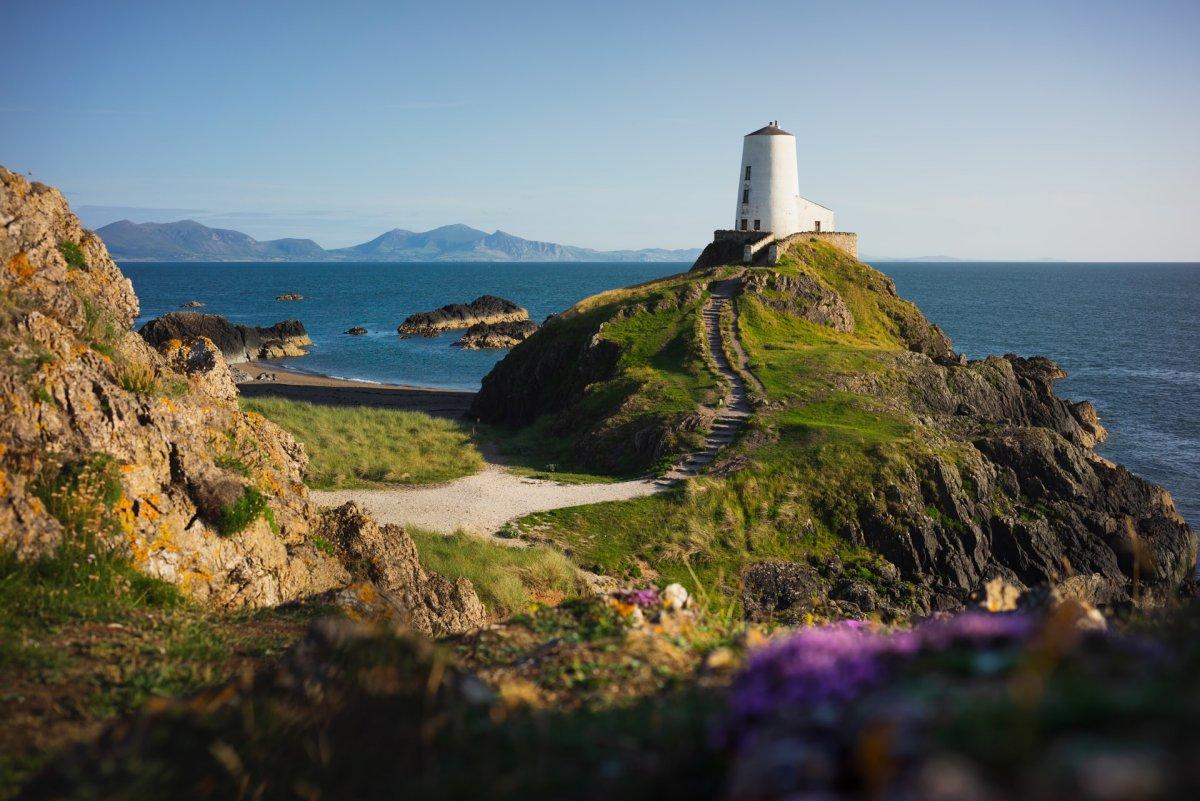
The island was named after Dwynwen, one of the 24 daughters of King Brychan Brycheiniog who lived in the 5th century, Welsh patron saint of love and counterpart of Saint Valentine. In the 16th century, the Welsh built a chapel in the center of the island, a place dedicated to Saint Dwynwen celebrated on January 25th. There’s also the Dwynwen’s fountain, a spring with eels that are said to reveal lovers’ loyalty according to their direction of rotation.
Apart from these stories, the island of Llanddwyn is an incredible place to visit in any season thanks to its beautiful wild nature.
23. Cwm Idwal
Located in the Snowdonia National Park not far from Bangor, Cwm Idwal is Wales’ first national nature reserve since 1954.
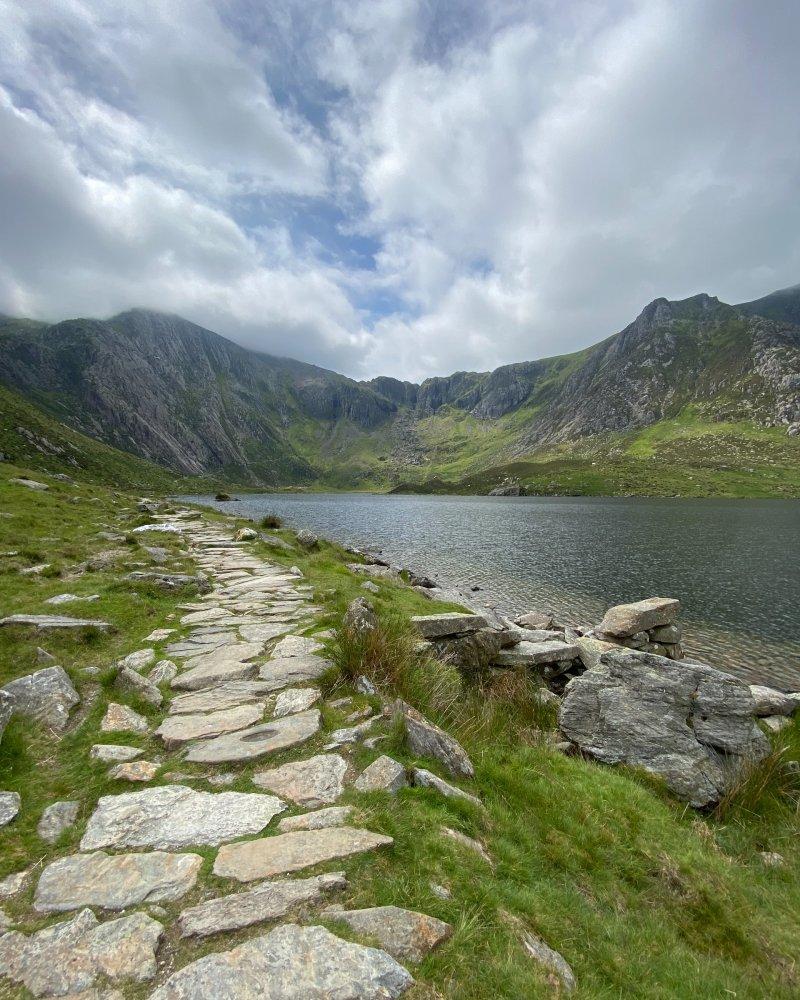
Cwm is a basin forming an amphitheater around Llyn Idwal, a glacial valley formed over centuries by the melting and formation of ice in the heart of the Glyderau Mountains.
Cwm Idwal is also known for its legend: it’s said that in the 12th century, a prince left his son, Idwal, with a friend. Jealous that his own son wasn’t as smart as Idwal, the friend pushed Idwal into the lake, leading him to drown. Following this tragedy, the prince banished his friend and son and named the lake Idwal. Since then, it is believed that birds don’t fly over the lake and Idwal’s cries can be heard during storms.
24. Llandudno
Situated on the seafront in North West Wales, this seaside resort is the oldest in the UK and the largest in Wales.
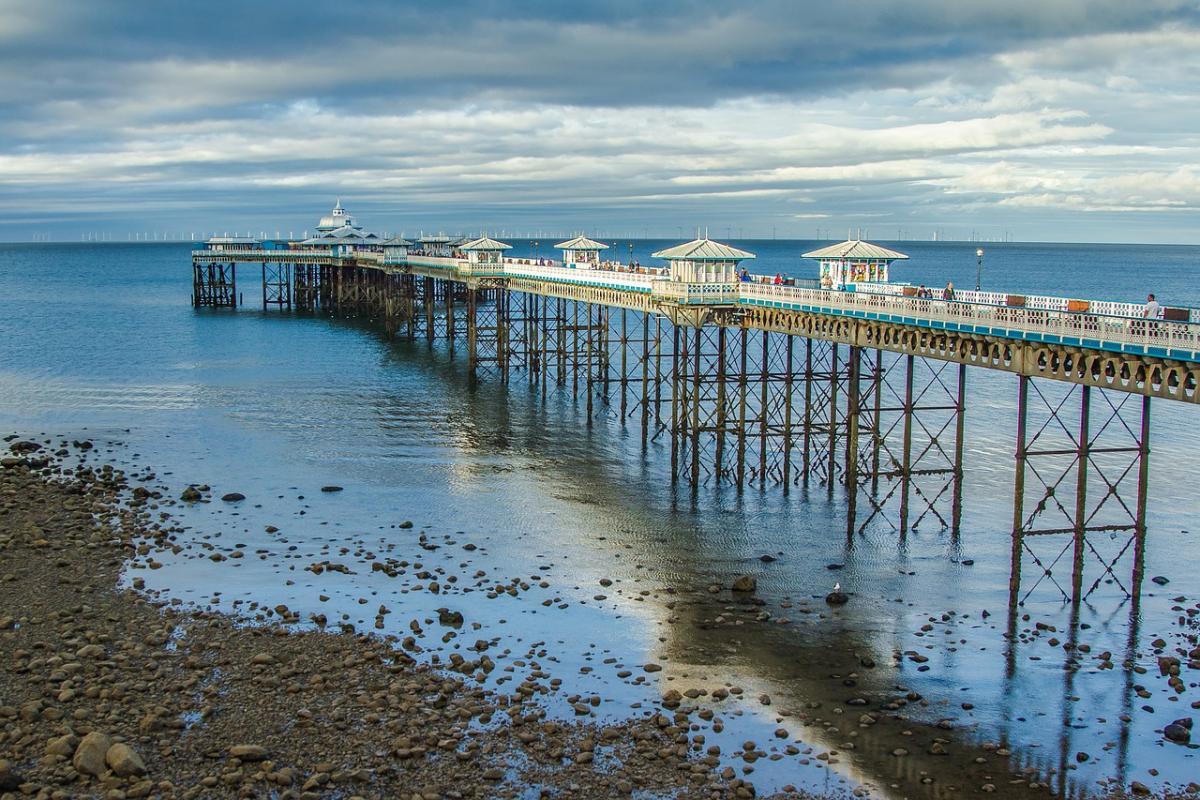
Straight out of the Victorian era, Llandudno is famous for its two large sandy beaches and its green promenade lined with pretty red brick houses. Llandudno is also home to the largest pier in Wales: Llandudno Pier.
Llandudno is not only a seaside resort. Attractions such as churches, public squares, parks, cliffs, mountains (Great Orme), and museums will pleasantly surprise you.
25. Llyn Peninsula
The Llyn Peninsula is an isthmus of about 40 kilometers extending into the Irish Sea in the northwest of Wales.
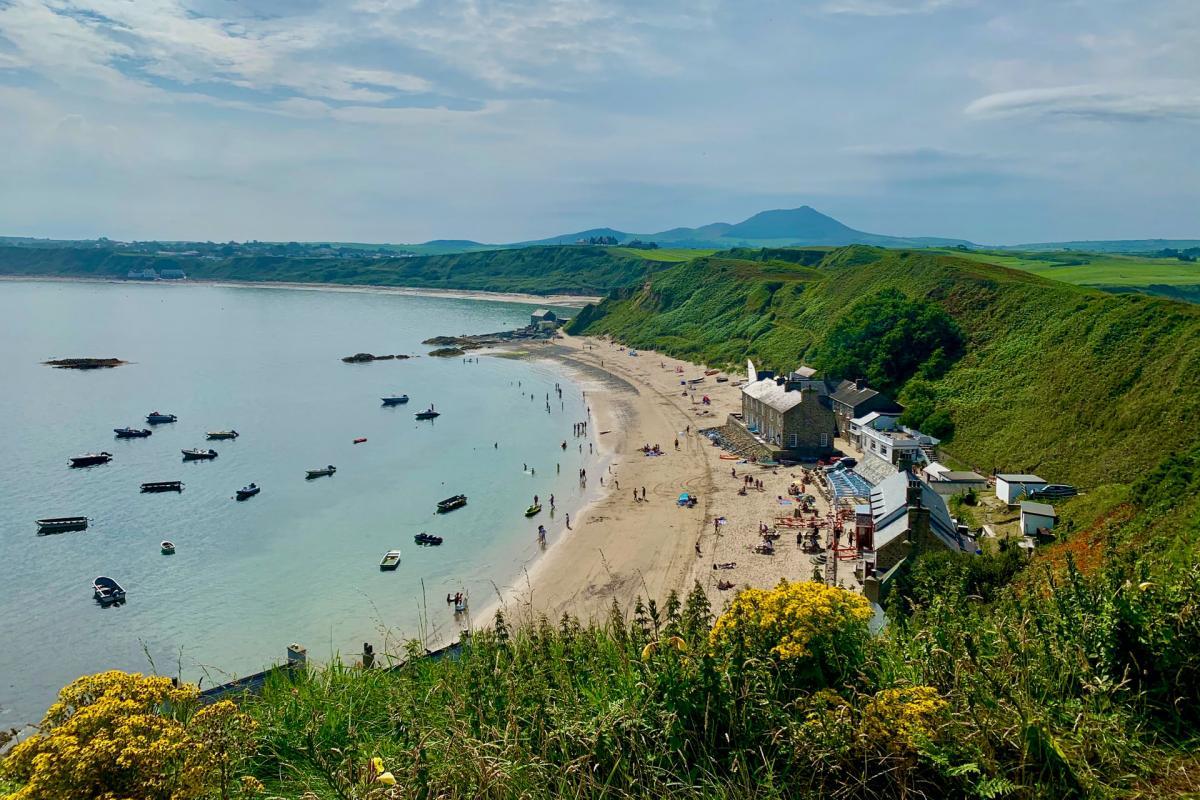
Composed of windswept cliffs to the north and beautiful beaches to the south, Llyn has some of Wales’ most iconic landscapes, such as the splendid Porthdinllaen Bay, which is featured on many tourist brochures.
The Llyn Peninsula is also a stronghold of Welsh culture and legends. At the tip of the peninsula is the famous Bardsey Island, which would in fact be the famous island of Avalon where King Arthur is said to be buried. It’s also said that Merlin is believed to sleep in a glass castle there.
26. Skomer Island
Located off the south coast of Pembrokeshire, Skomer is surrounded by some of the richest wildlife waters in the British Isles.

Almost split in 2, Skomer is crossed by a series of slopes and ridges, giving it a rich and varied topography. Inhabited until 1950, the island has since become a national nature reserve, a site of scientific interest, and a protected area especially because of its fauna. Skomer is also known for its archaeological interest (stone circles, standing stones, remains of prehistoric houses…)
Wild, the island has no pubs, cafes, or other modern establishments – it’s one of the few strongly protected islands in the UK. A natural change of scenery is guaranteed, only a few minutes from the South West Welsh coast.
27. Rhossili Bay
At the end of the Gower Peninsula, a tiny village called Rhossili offers a magical walk in the heart of one of the most beautiful landscapes in Britain.
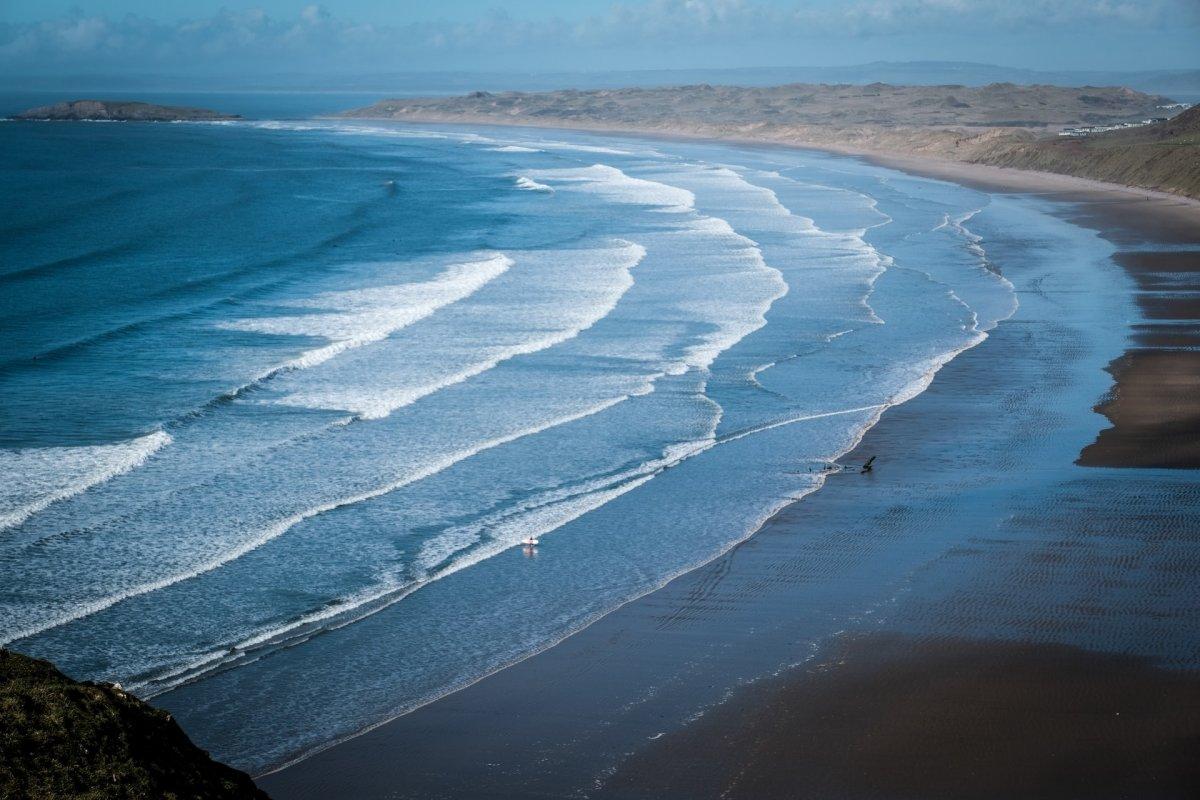
The village has given its name to a magnificent bay, Rhossili Bay, which stretches for 5 kilometers from Worms Head to Burry Holms. Often ranked as one of the most beautiful beaches in Europe, Rhossili Bay beach is overlooked by moss-covered crags and grassy cliffs.
The area offers many hiking trails, including the Gower Coast Path and attracts both families and water sports fans.
28. Lake Vyrnwy
Located on the edge of Snowdonia National Park, Lake Vyrnwy is set in the middle of the beautiful isolated Berwyn Mountains.
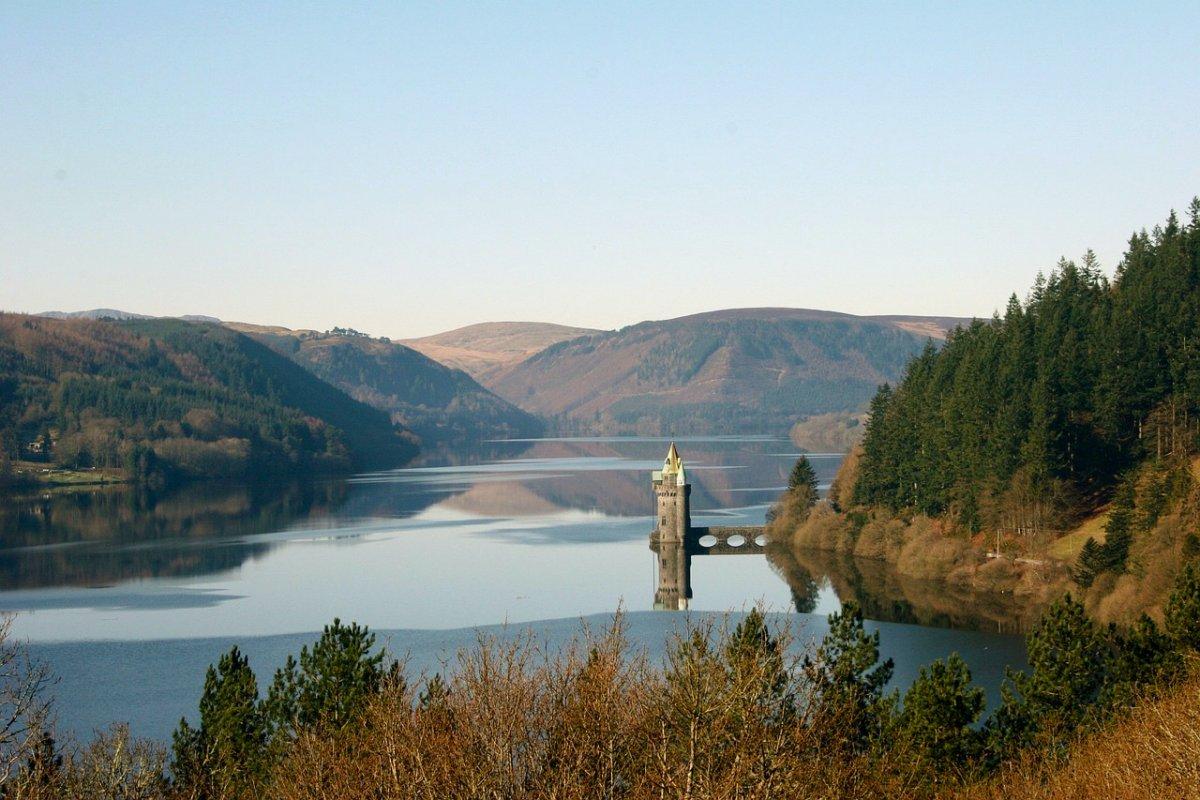
With its spectacular waterfalls and unspoiled countryside, Lake Vyrnwy is the ideal starting point for exploring Snowdonia, the Welsh Marches, and the coast from Harlech to Aberystwyth.
With its forests, moors, and farmland, Lake Vyrnwy has become a nature reserve of international standing for wildlife and biodiversity. You can see an incredible variety of birds and landscapes, and light pollution is so low that it’s one of the best places for stargazing in the UK.
More Famous Wales Landmarks
There’s so much to do and see in Wales we couldn’t stop the list at 28. We’ve added 17 more popular landmarks in Wales you definitely should try if you’re around. To make it easier, we’ve arranged them by region.
Let’s jump right to it!
North Wales
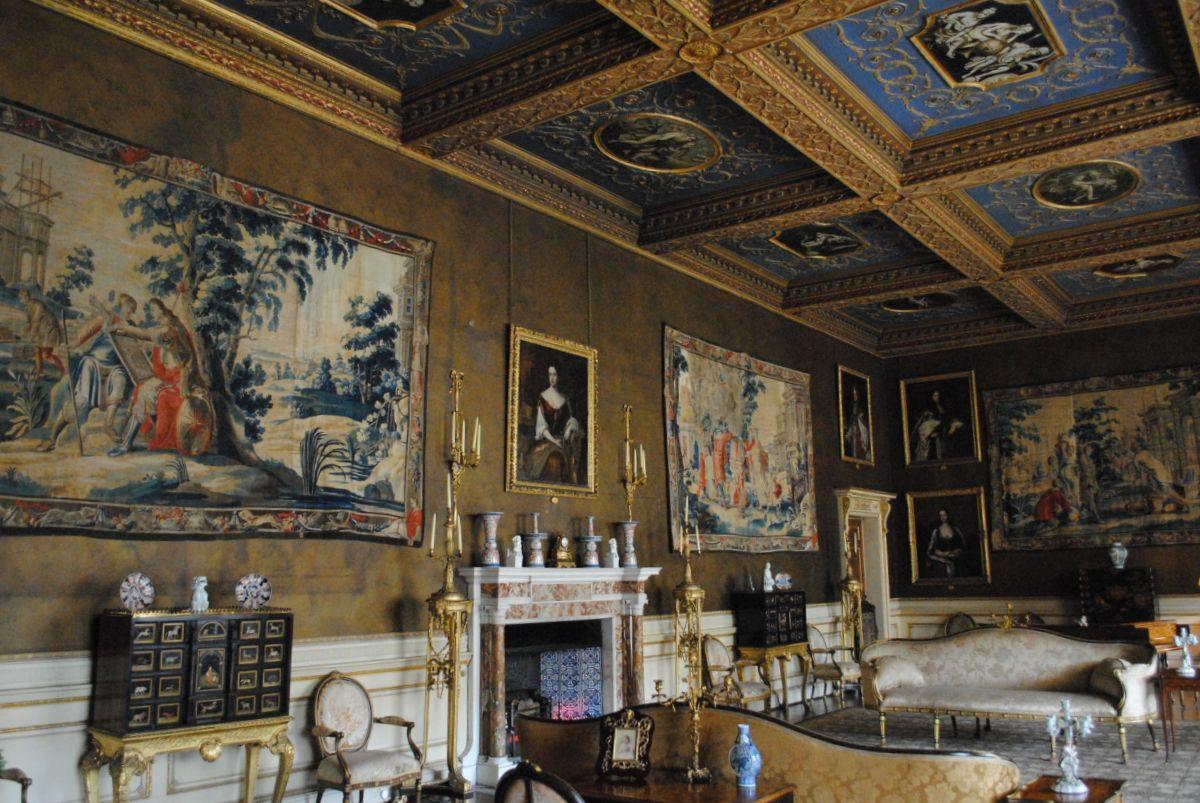
Inside Chirk Castle
- Chirk Castle
- Plas Newydd House
- Dolbadarn Castle
- Tre’r Ceiri
- Llyn Ogwen
- Cregennan Lakes
West Wales
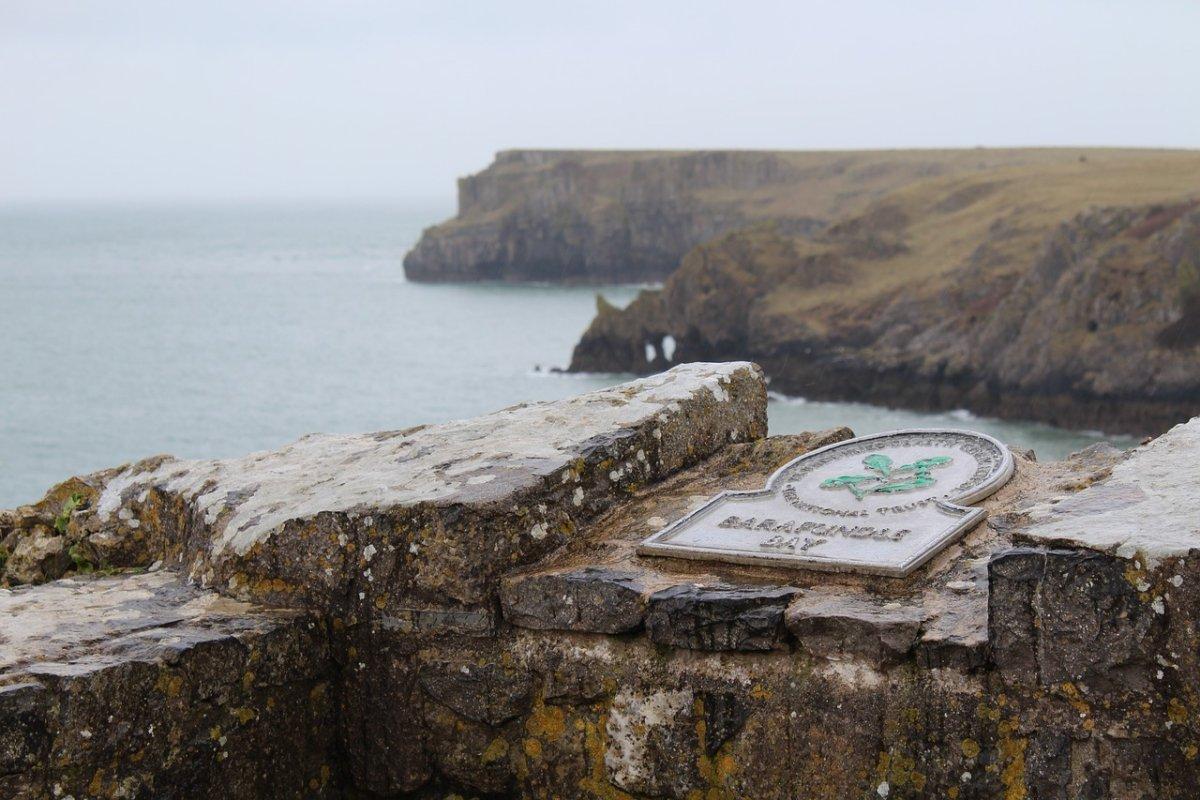
Barafundle Bay
- Carreg Cennen Castle
- Barafundle Bay Beach
- Dinefwr Castle
- Ynyslas Dunes
- Paxton’s Tower
South Wales
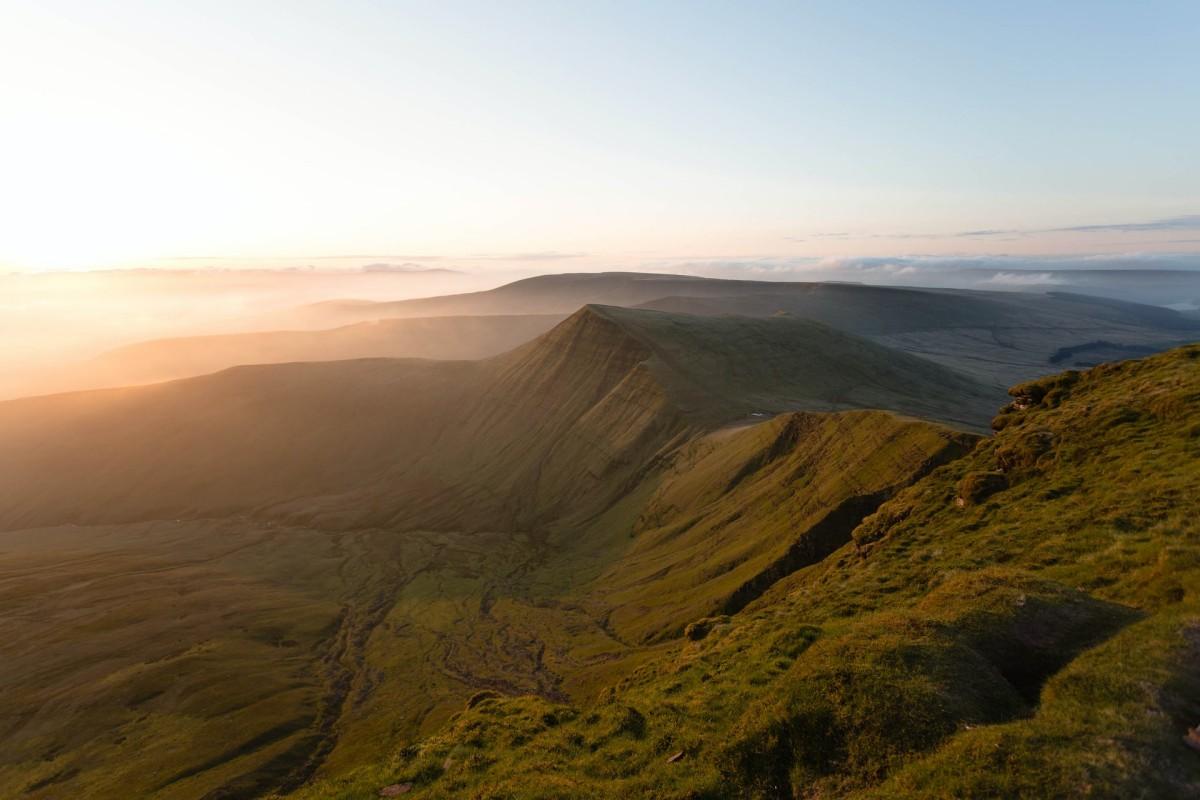
Pen y Fan
- National Showcaves Centre for Wales
- Pen y Fan
- Offa’s Dyke
- Llyn y Fan Fach
- National Museum Cardiff
- Llandaff Cathedral
Map of the Famous Landmarks of Wales
To get the free map of the famous Welsh landmarks, simply click on the image below to open it in Google Maps. Then click on the “star” icon to save it to your own maps.
More Wales Landmarks
Want to discover more landmarks in Wales?
- Check out this post of the Best Landmarks in Cardiff
- You can also check the full guide of all the famous UK landmarks 👉 The Very Best Landmarks in the UK.
For more, you can read all our UK guides.
I hope you’ve found all the information you needed to make your Wales bucket list through these posts. Don’t hesitate to comment below if this is the case, I would be very pleased to read your feedback!
Loved this post? Share it with your friends by using the buttons below, I’m sure they’ll love it! 😊
Travel Tools
Use any of our recommended links below to book your trip. You pay the same, and we earn a small fee; a great way to support us!
Pin this to Pinterest!
Enjoyed this guide? Then help a fellow traveler and pin it! They'll most definitely love you for it, 100% guarantee.
